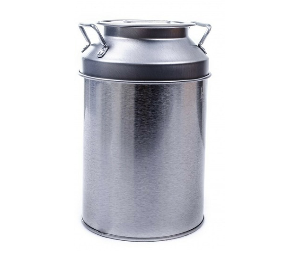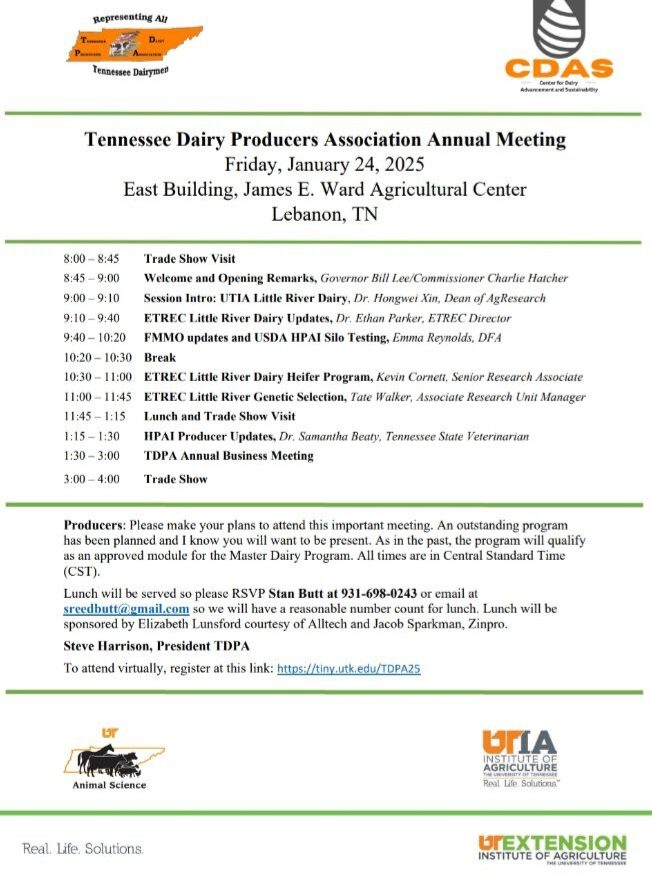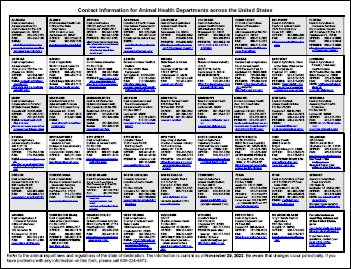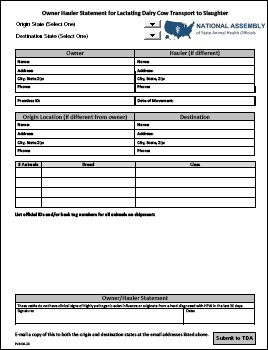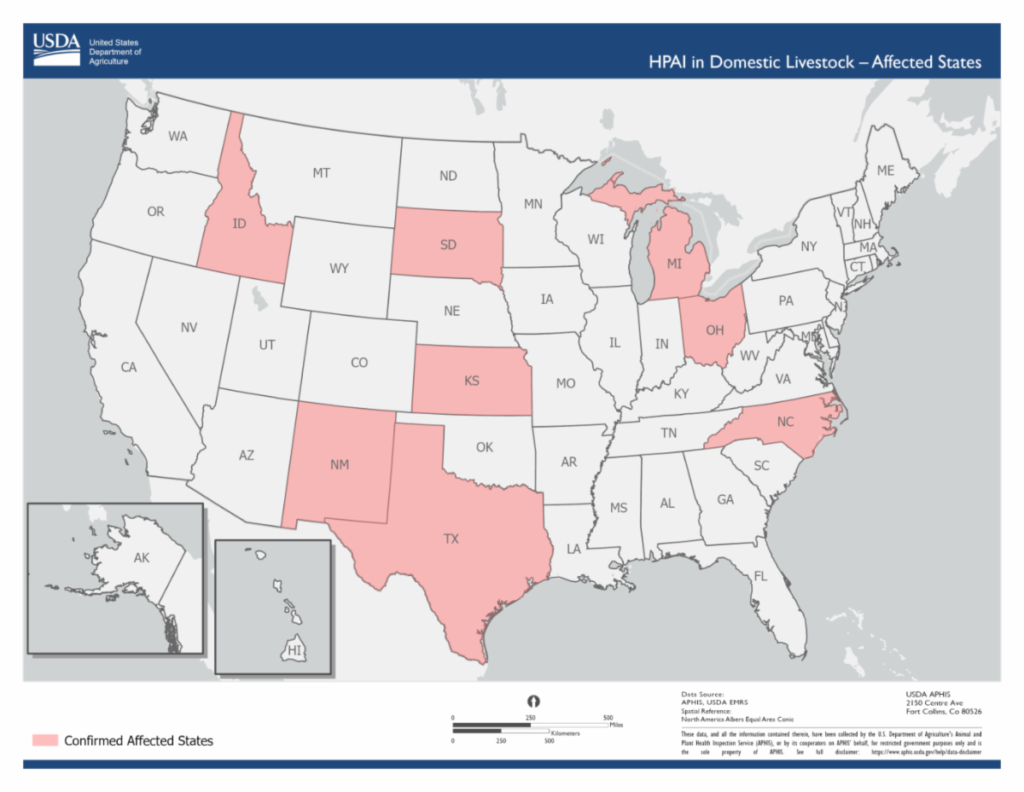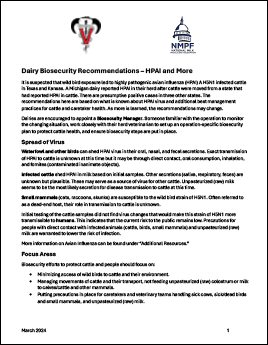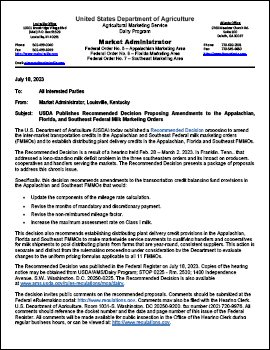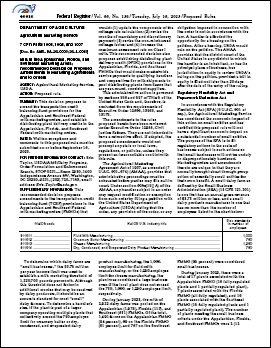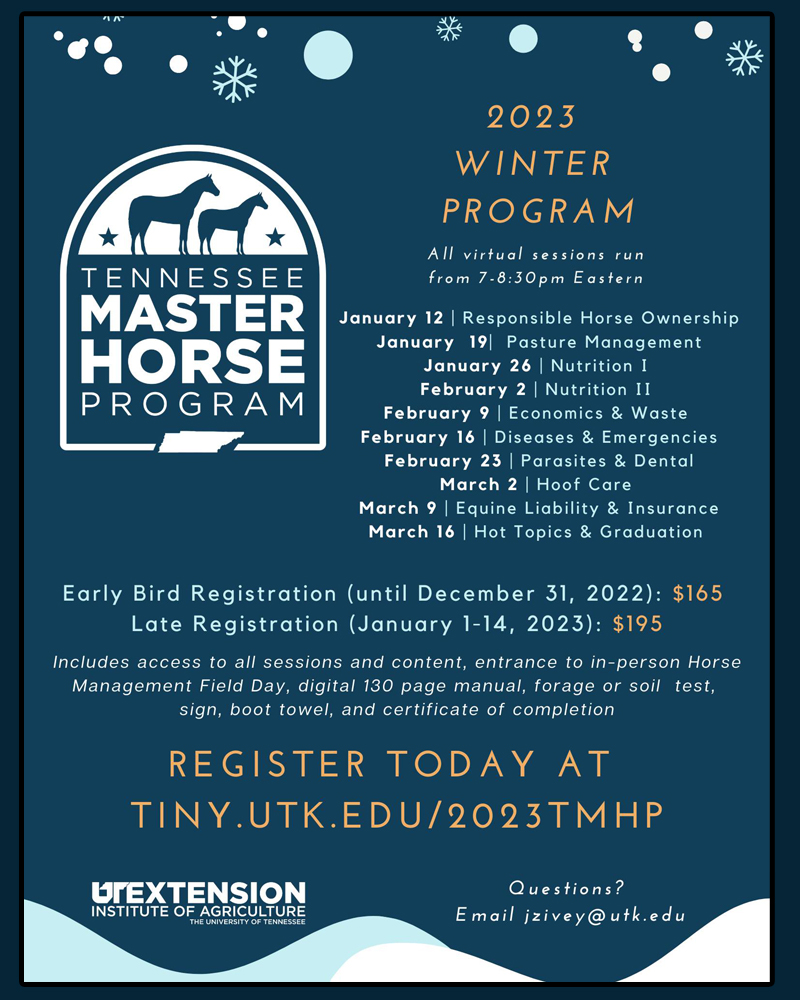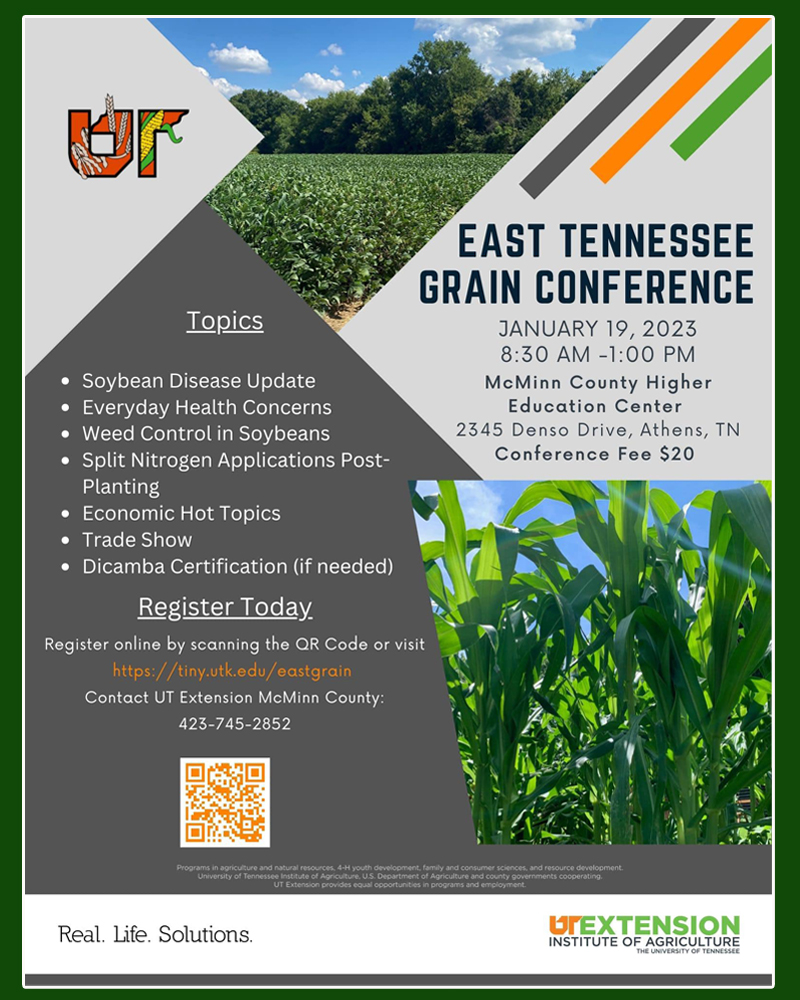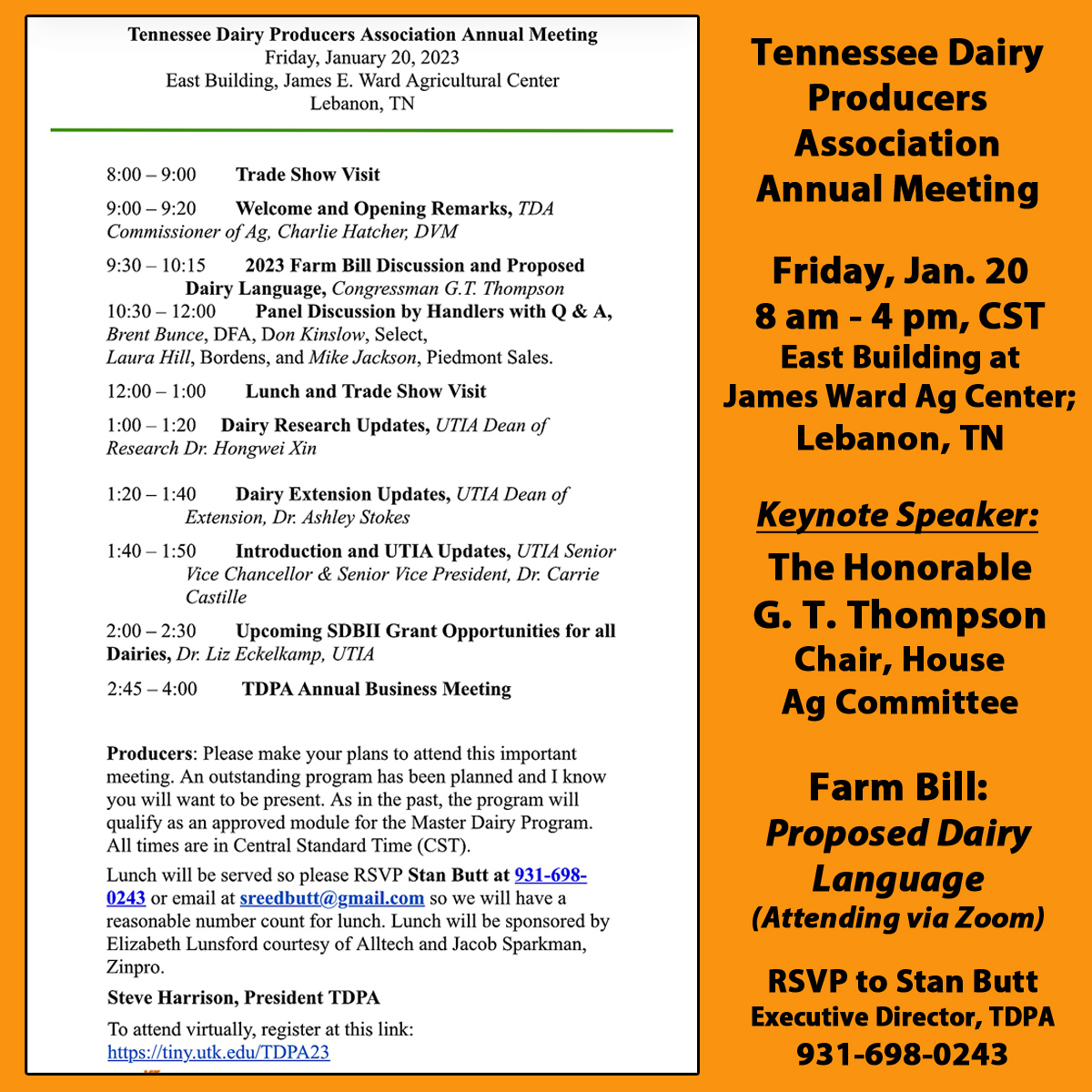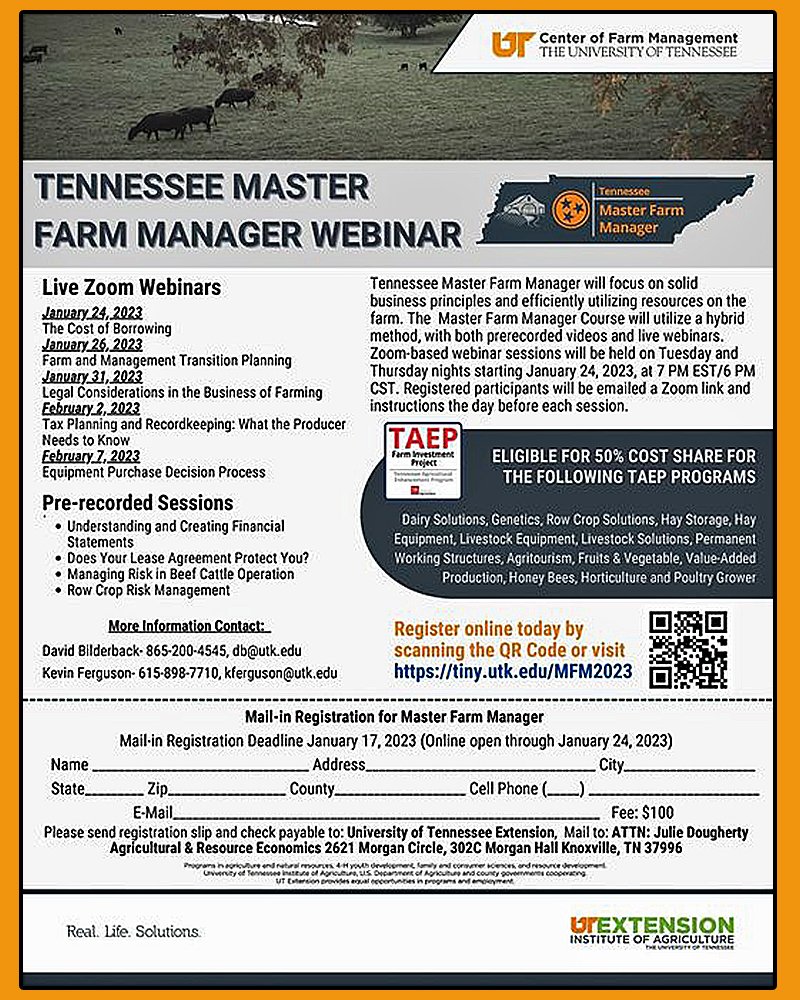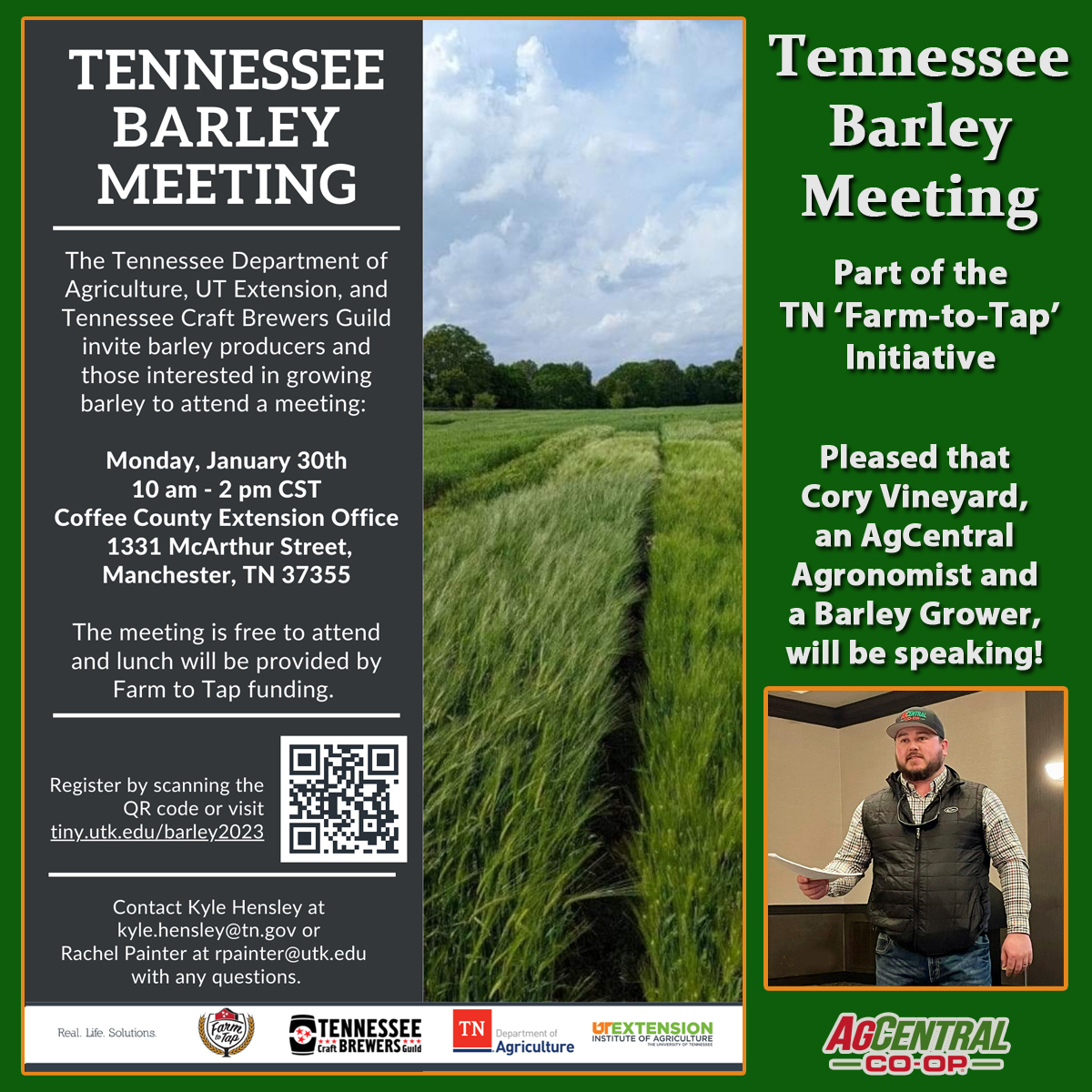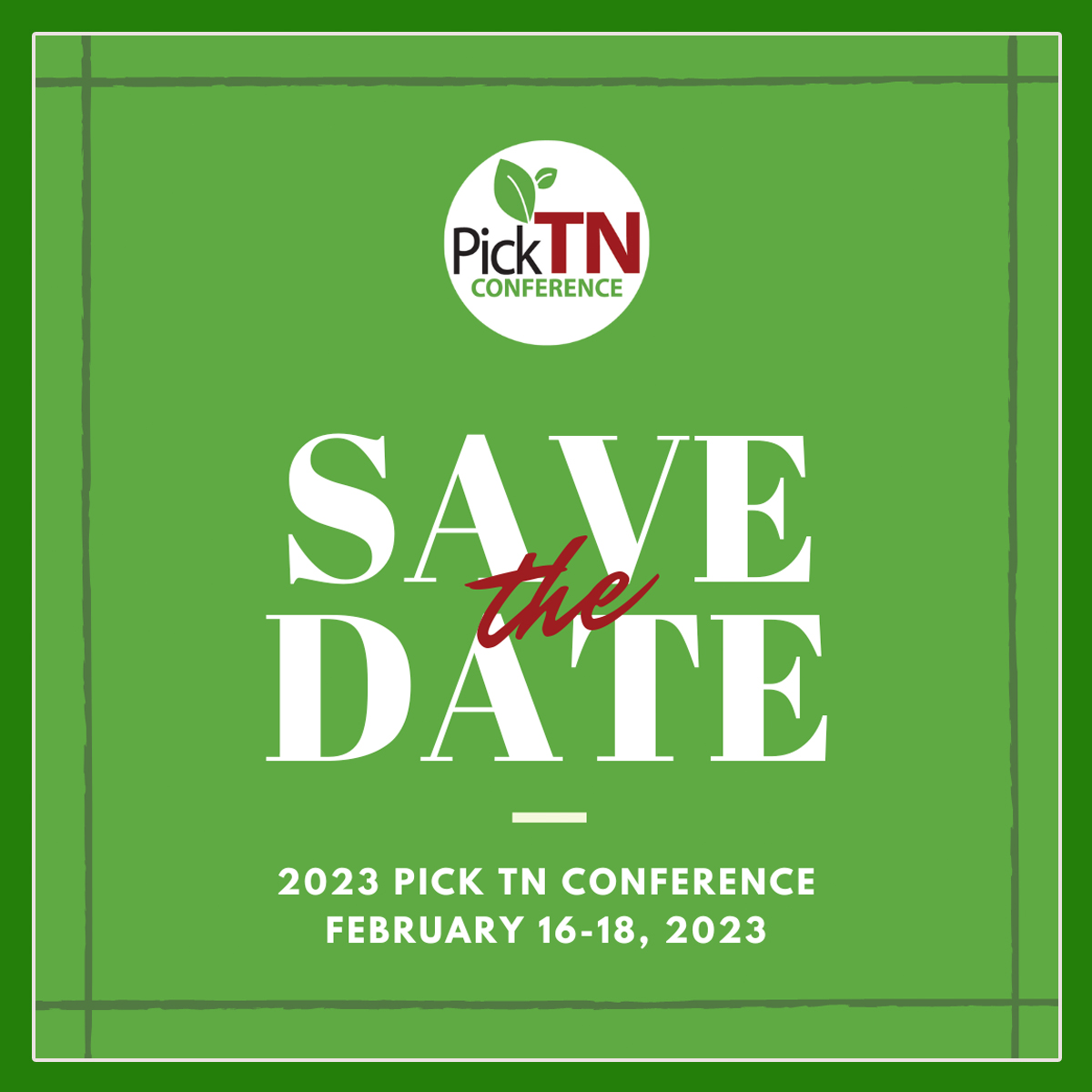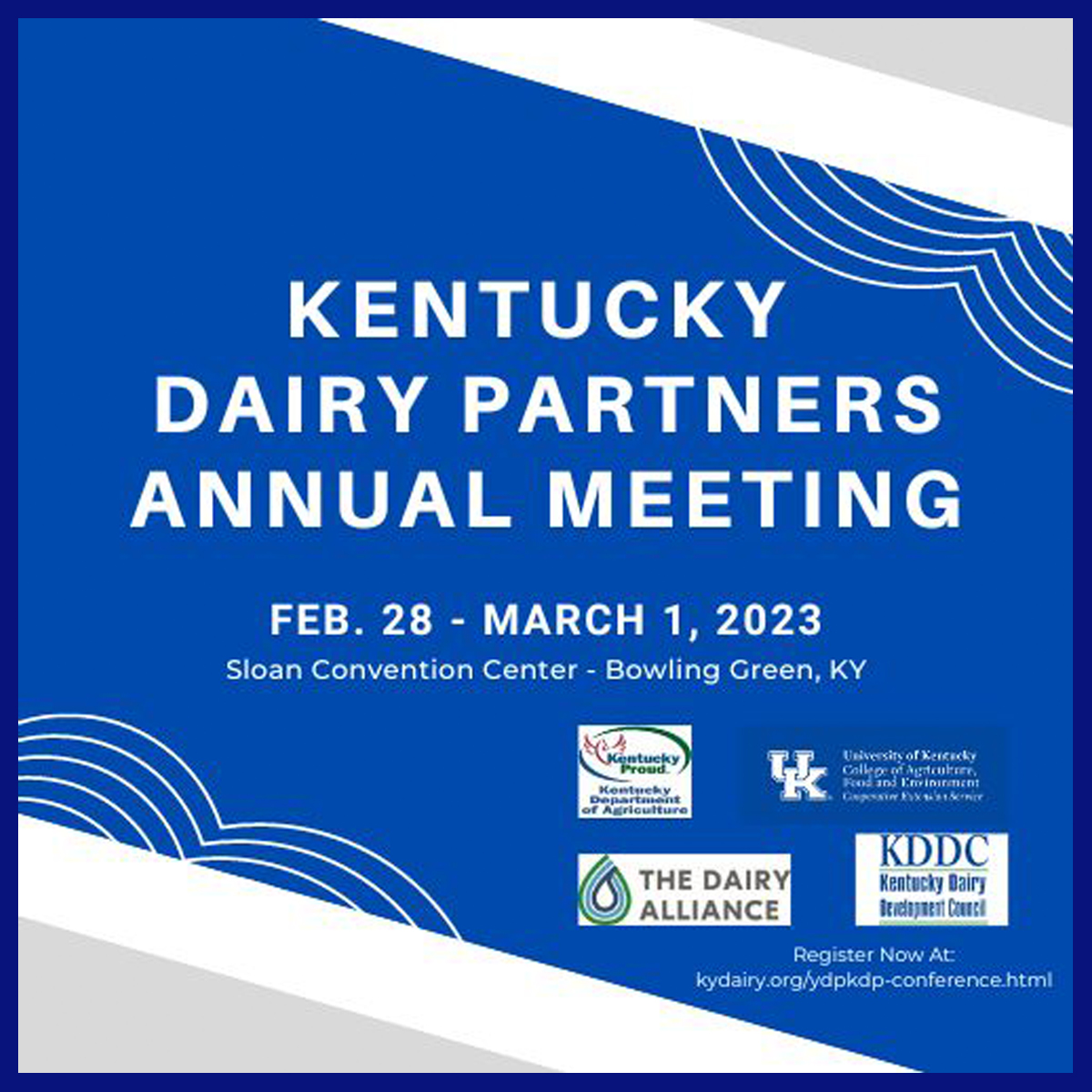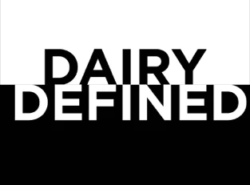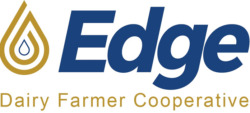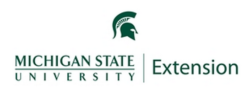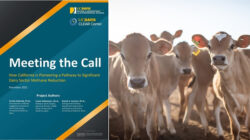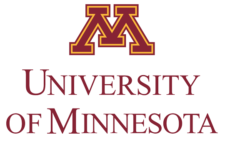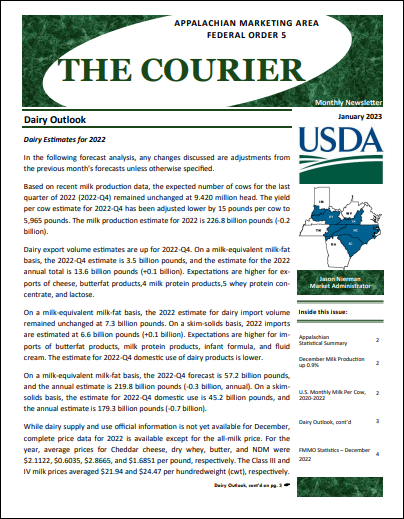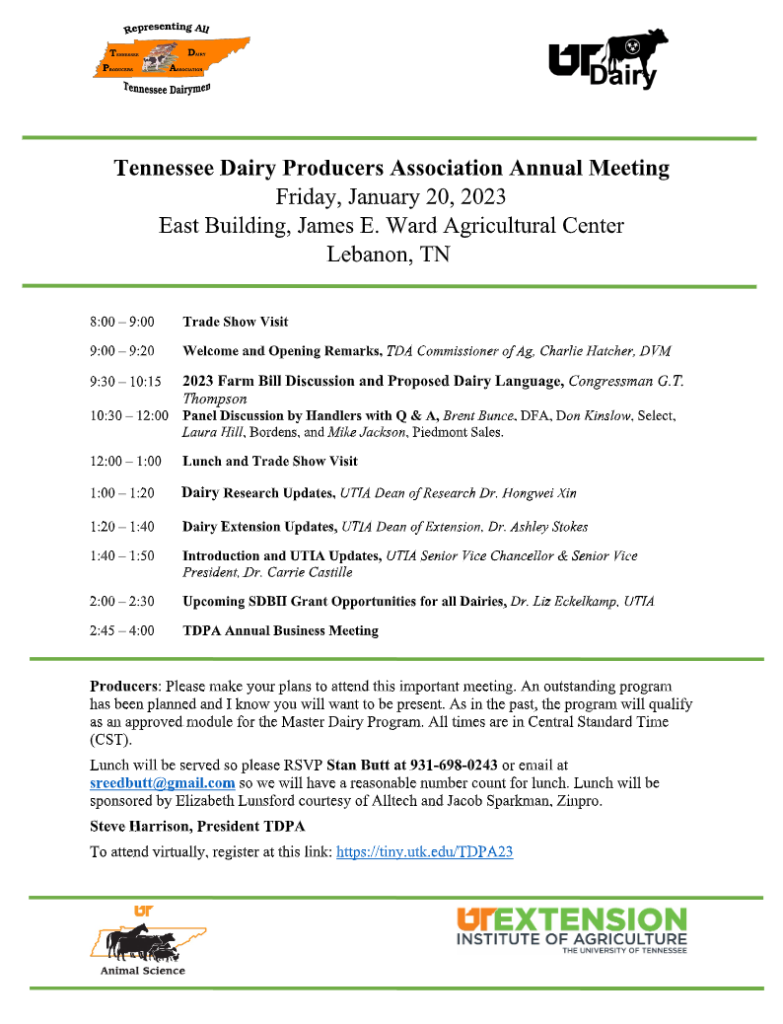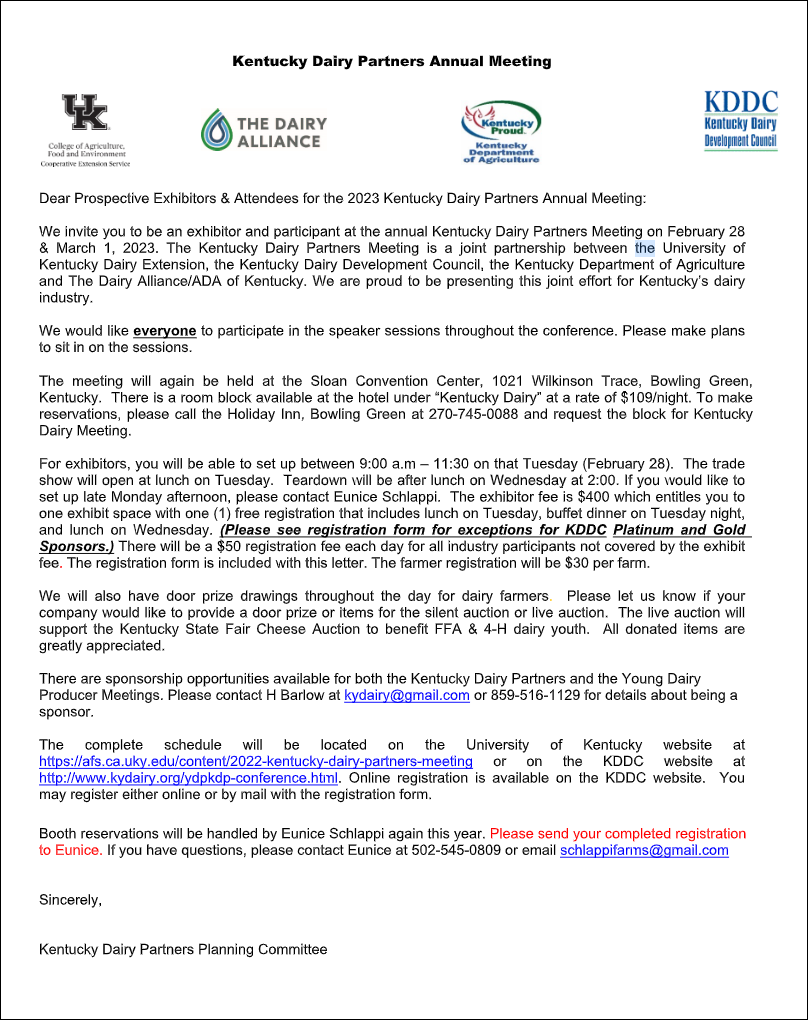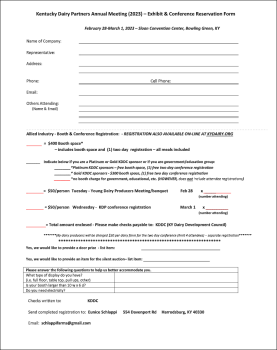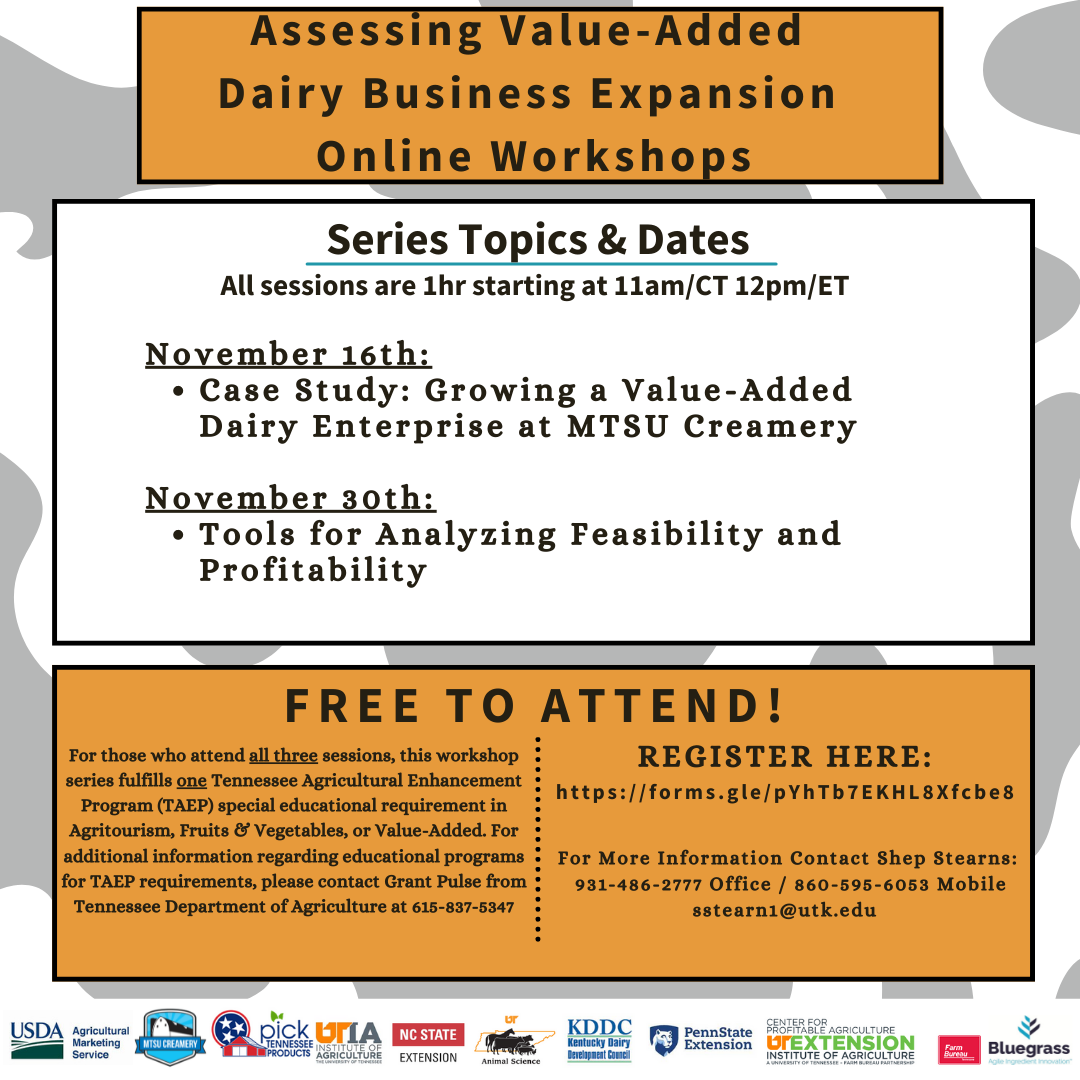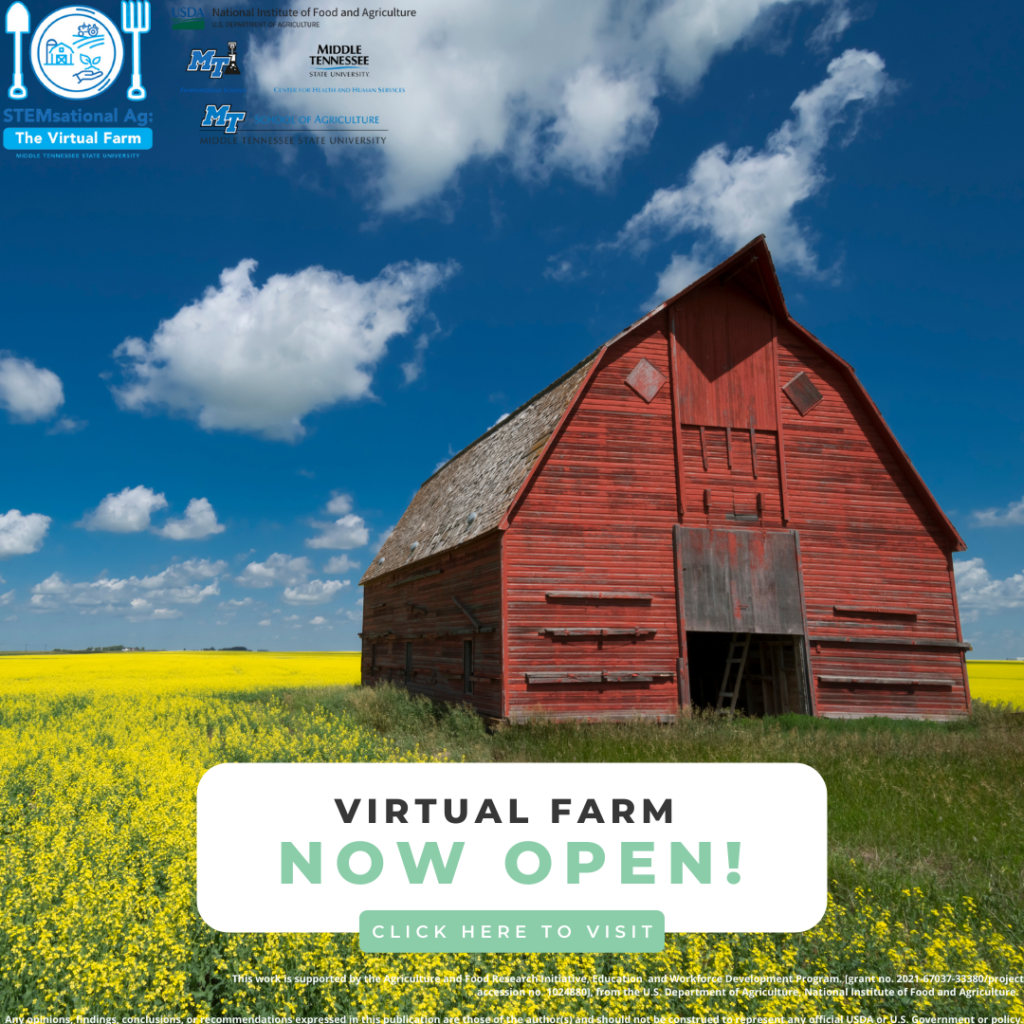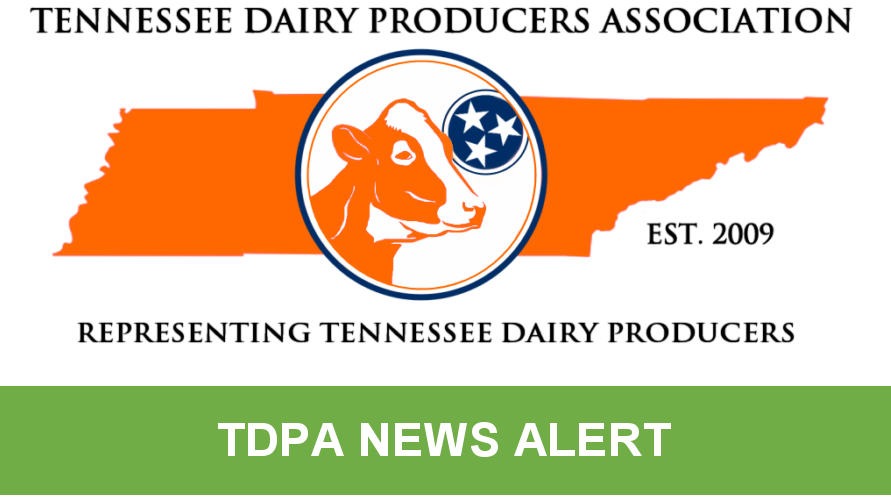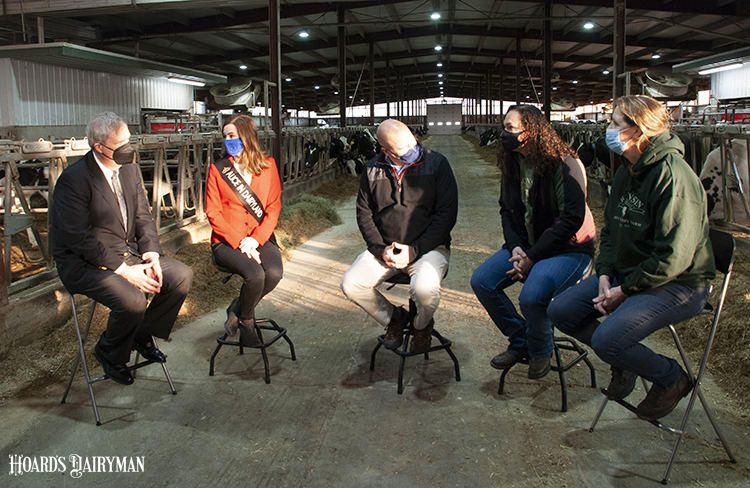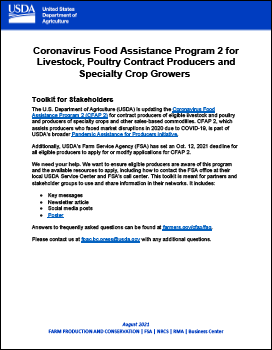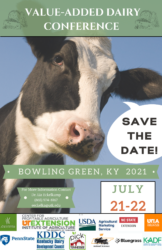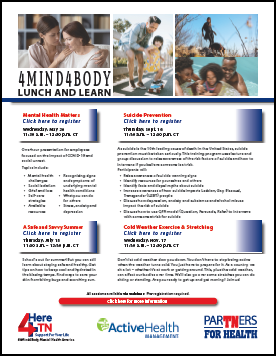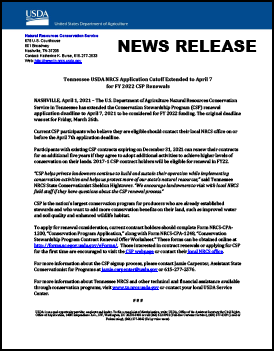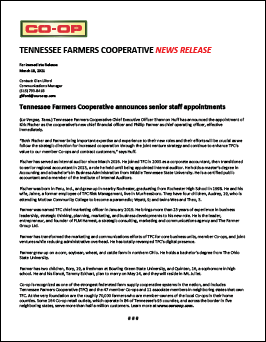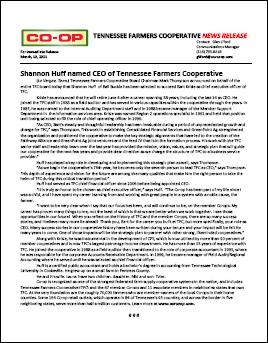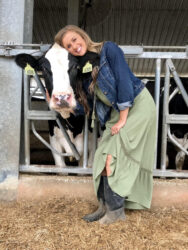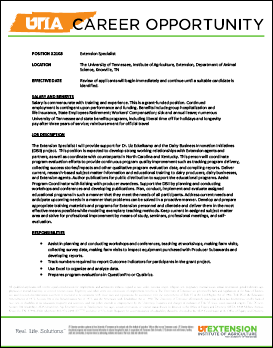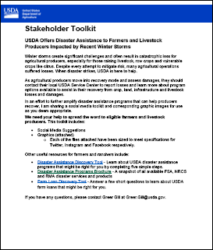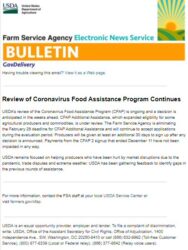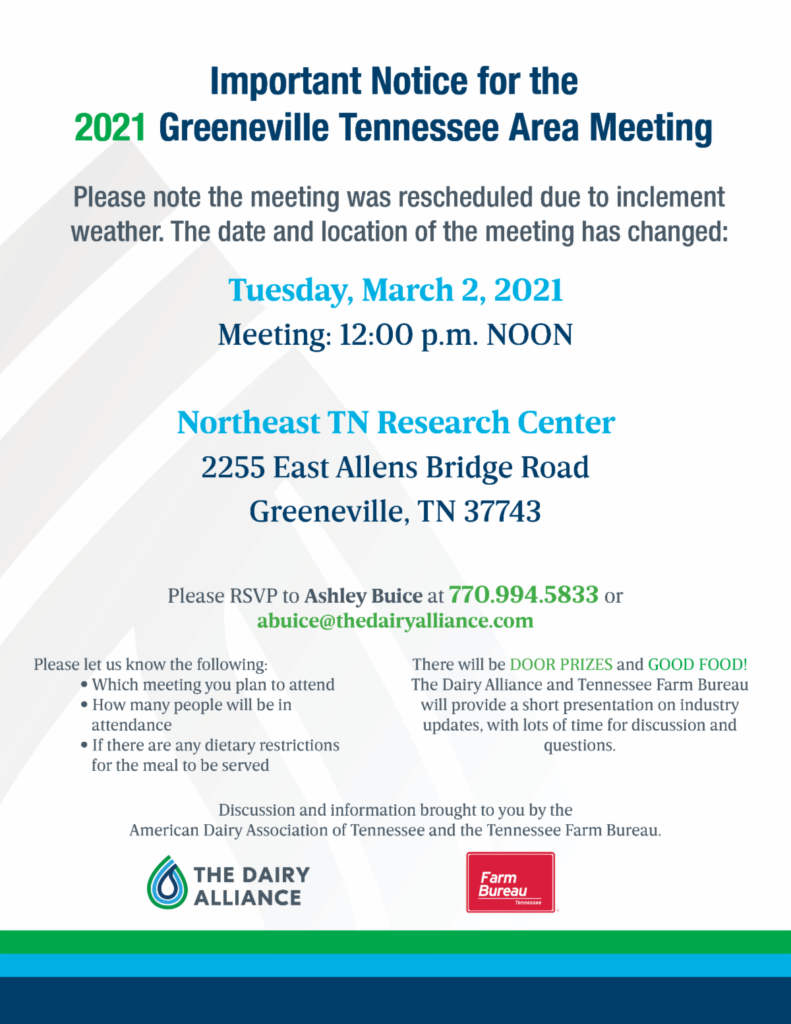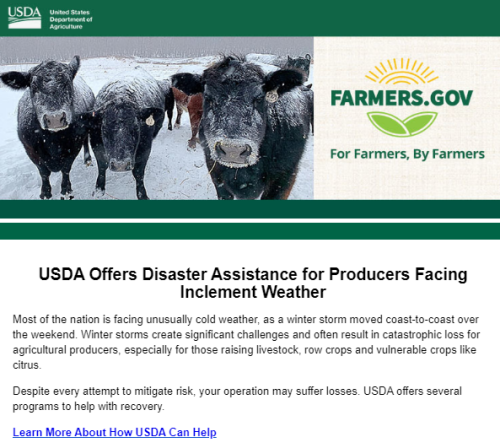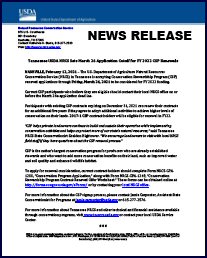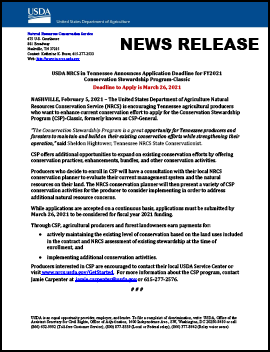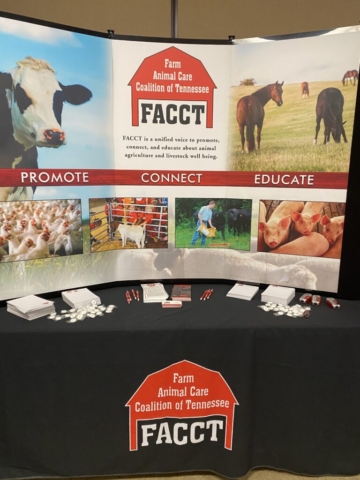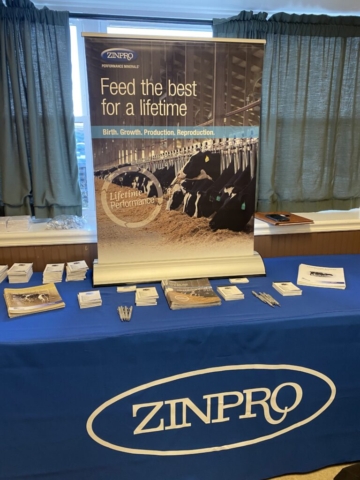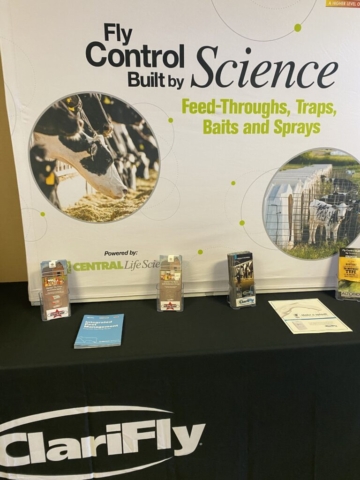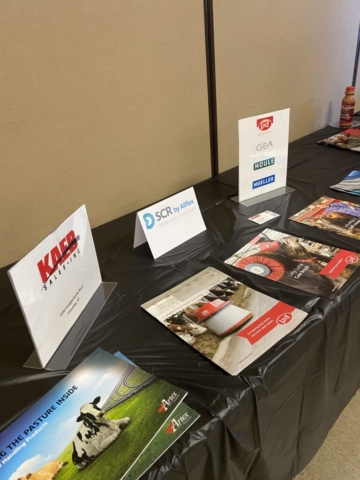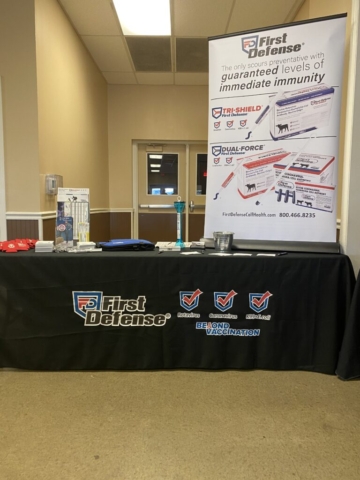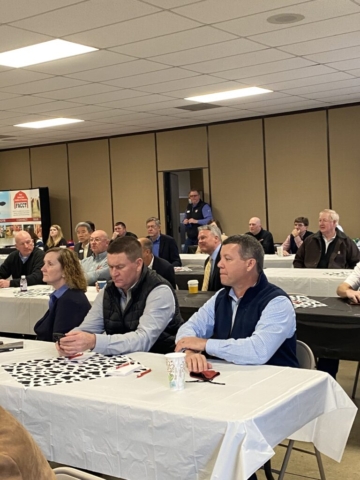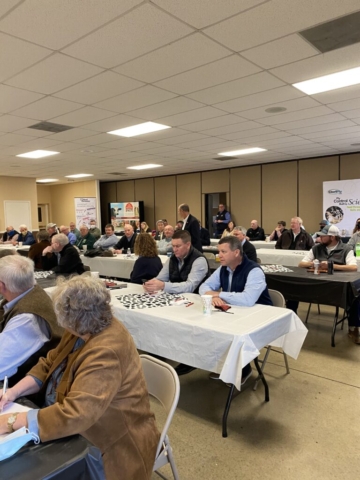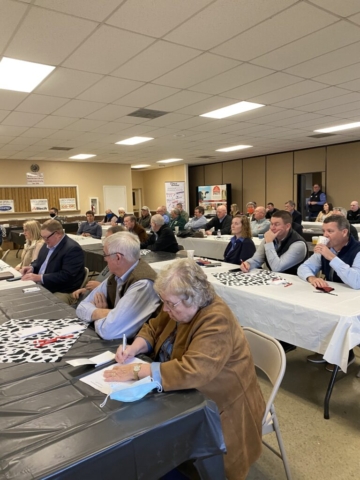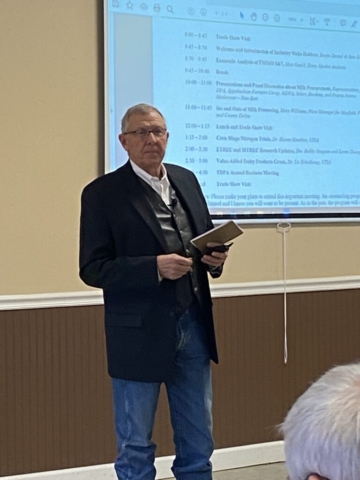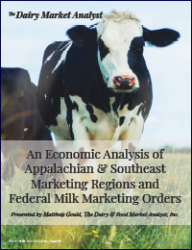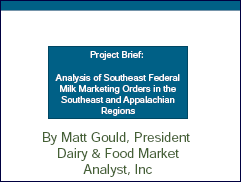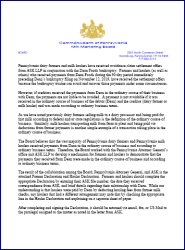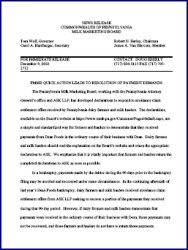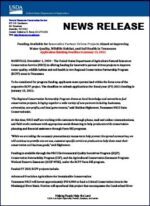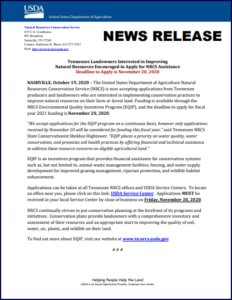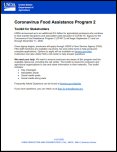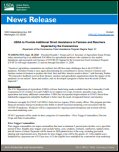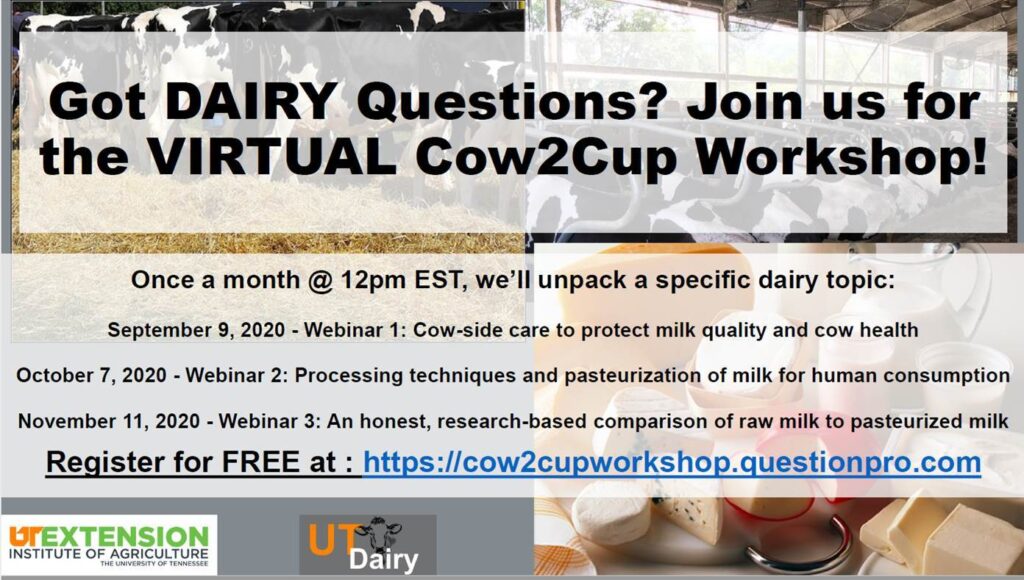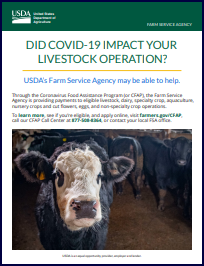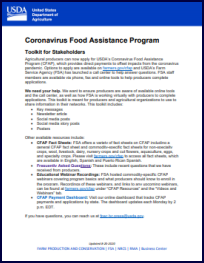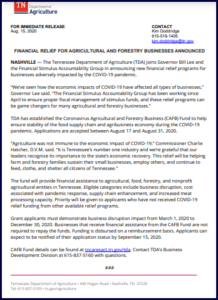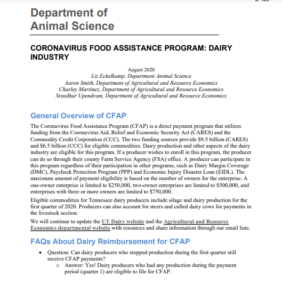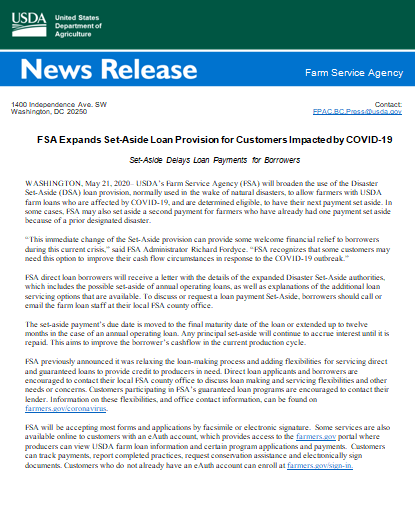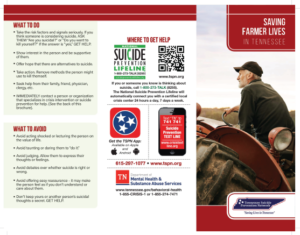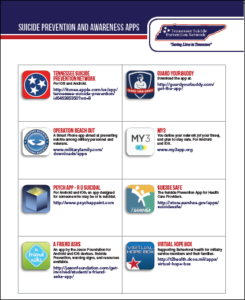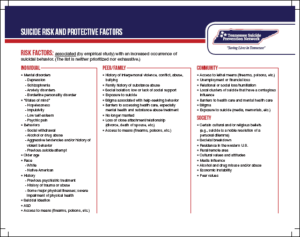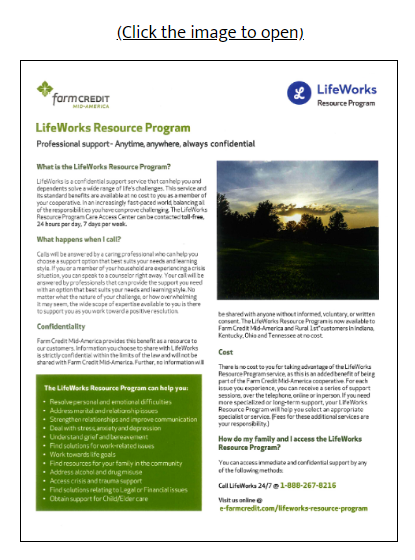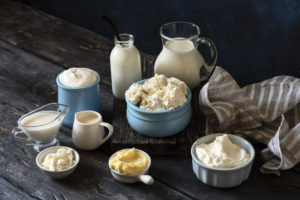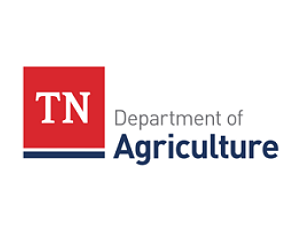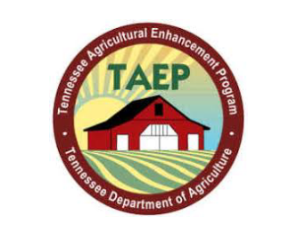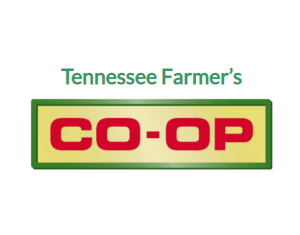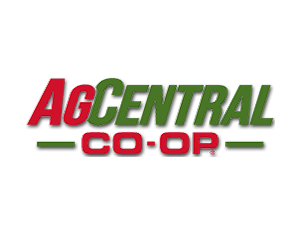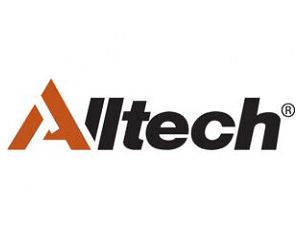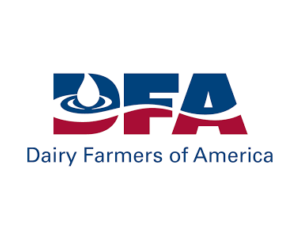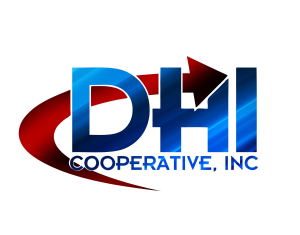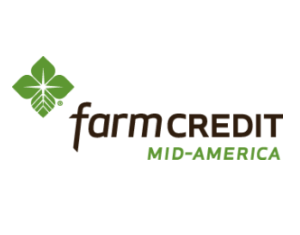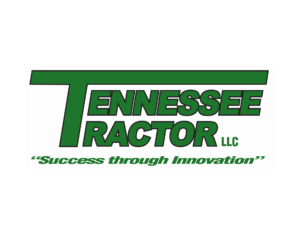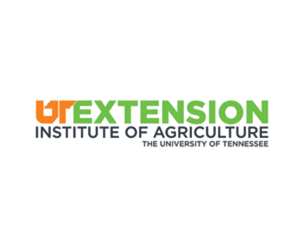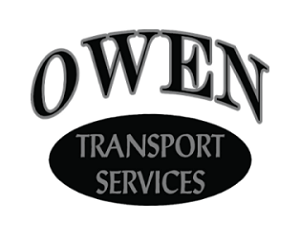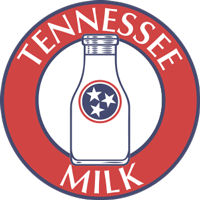NEWS

TN Dairy Producers Board Updated click here to view

Updated Owner Shipper Statement
Good morning,
I have attached an updated version of the owner shipper statement (OSS) with updated email addresses for some states.
Dairy cattle who have an approved USDA back tag can move on an OSS direct to slaughter with the permission of the receiving state. I have attached a contact list of all state veterinary offices for your convenience. Please contact the destination state of the shipment for absolute clarity. If in doubt, a certificate of veterinary inspection (CVI) with official individual identification numbers (EID tags or NUES tags, not a back tag) listed on it can be used.
Please send completed owner shipper statements to our office at animal.health@tn.gov and to the destination state at the email listed on the attached form.
If you have any questions, please reach out to our office at 615-837-5120. You may also contact Billy Graham, USDA Animal ID Coordinator at 615-210-0617.
Thank you.
Susan Leimer
Animal ID Coordinator
Department of Agriculture
Porter Building
436 Hogan Road, Nashville, TN 37220
615-837-5120 Fax 615-837-5250
(Click the images below to view / download documents)
Lactating Dairy Cattle to Slaughter Movement Documents
Good morning, all,
As discussed in the meeting this morning, I have attached the Owner Hauler document and excel spreadsheet to be used for lactating dairy cattle moving to slaughter. If you need assistance or have any questions, please reach out to us by email at animal.health@tn.gov or by phone at 615-837-5120.
We will continue to update our Animal Health Alerts webpage with new details regarding this developing situation.
Thank you.
Susan Leimer
Animal ID Coordinator
Department of Agriculture
Porter Building
436 Hogan Road, Nashville, TN 37220
615-837-5120 Fax 615-837-5250
(Click the images below to view / download documents)
Owner Hauler Statement for Lactating Dairy Cow Transport to Slaughter
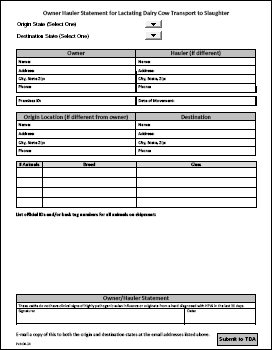
Template bulk animals – Dairy to slaughter
USDA issues Federal Order effective Apr. 29:
Mandatory testing of dairy cows before interstate movement
WASHINGTON – The USDA Animal and Plant Health Inspection Service (APHIS) announced a Federal Order to prevent the spread of highly pathogenic avian influenza (HPAI). It includes mandatory testing of lactating dairy cows before interstate movement, effective April 29, 2024, and further dairy cattle classes will be addressed in future updates. APHIS will have further interstate movement requirements forthcoming.
“HPAI is a contagious viral disease of domestic poultry and wild birds. HPAI is deadly to domestic poultry and can wipe out entire flocks within a matter of days. HPAI is a threat to the poultry industry, animal health, human health, trade, and the economy worldwide,” states APHIS in the April 24 announcement.
Citing the Secretary of Agriculture’s regulatory authority to prohibit or restrict the movement in interstate commerce of any animal or article as a means of conveyance, the Federal Order states that the Secretary has determined restriction is necessary to prevent spread.
“APHIS has determined that good cause exists to impose these requirements without notice and comment, as further delay would threaten to hasten the spread of the disease, multiplying the potential harm to livestock, poultry, the dairy industry, and, potentially, human health,” the announcement states.
Since Feb. 2022, USDA has worked with states and poultry producers to identify and respond to over 1,100 HPAI detections on poultry farms and mitigate the virus’ impact on U.S. poultry production and trade.
Since late March 2024, USDA, FDA and CDC, along with state veterinary and public health officials and the National Animal Health Laboratory Network (NAHLN) laboratories have been investigating the emergence of the HPAI, H5N1 virus in dairy cows.
Now, as of April 24, 2024, USDA has confirmed HPAI H5N1 clade 2.3.4.4b virus detections on 33 dairy cattle premises in 8 states (Kansas, Idaho, Michigan, New Mexico, North Carolina, Ohio, South Dakota, Texas).
USDA has also confirmed — based on specific phylogenetic evidence and epidemiological information — that 8 poultry premises in 5 states (Kansas, Michigan, Minnesota, New Mexico and Texas) have also been infected with the same HPAI H5N1 virus genotype detected in dairy cattle.
Additionally, APHIS’ National Veterinary Services Laboratories found HPAI in a lung tissue sample from an asymptomatic cull dairy cow that originated from an affected herd and which did not enter the food supply.
HPAI has already been recognized as a threat by USDA, and the interstate movement of animals infected with HPAI is already prohibited. However, the detection of this new distinct HPAI H5N1 virus genotype in dairy cattle poses a new animal disease risk for dairy cattle — as well as an additional disease risk to domestic poultry farms — since this genotype can infect both cattle and poultry.
In order to continue to monitor and understand the extent of this virus and reduce further risk and threat, this Federal Order requires the following measures for mandatory testing for interstate movement of dairy cattle, effective Monday, April 29, 2024:
1) Prior to interstate movement, dairy cattle are required to receive a negative test for Influenza A virus at an approved National Animal Health Laboratory Network (NAHLN) laboratory.
2) Owners of herds in which dairy cattle test positive for interstate movement will be required to provide epidemiological information, including animal movement tracing.
3) Dairy cattle moving interstate must adhere to conditions specified by APHIS.
4) As will be described in forthcoming guidance, these steps will be immediately required for lactating dairy cattle, while these requirements for other classes of dairy cattle will be based on scientific factors concerning the virus and its evolving risk profile.
Included in the Federal Order is mandatory reporting details for laboratories and state veterinarians.
For more information regarding this Federal Order go to HPAI Detections in Livestock Page at https://www.aphis.usda.gov/
American Dairy Coalition | 920-288-7190 | www.americandairycoalitioninc.
Dairy Biosecurity Recommendations – HPAI and More
I wanted to share the most recent updates regarding HPAI in Dairy cattle, by AABP (above). I would also like to ask a small favor of this group…
Since the restricted movement order was put into place, I have been hearing that people think the ban is on all cattle from affected states.
If you could please pass the word:
Dairy cattle from AFFECTED premises are restricted from moving into Tennessee.
Adult DAIRY cattle from affected states must be permitted and depending on proximity to the affected herds MAY be required to test before entry.
So, anyone moving dairy animals to Tennessee from TX, KS, ID, MI, NM and OH would need to call the State Vet’s Office and get a permit. At which time, they may be asked to test before entry depending on their location.
Movement out of affected states is still allowed because the numbers of herds affected relative to the numbers of herds unaffected is minimal and we don’t want to slow commerce for healthy animals. Permitting helps TDA have good traceability in the event a herd does become positive.
Beef cattle can continue to move freely, as there have been no detections in beef animals and TDA rule prohibits movement of any sick animals into the state.
Mechanical transmission through milk equipment seems to be the primary cause of spread between most farms. Other mechanisms have not been ruled out completely, and certainly the virus got from birds into a cow(s), so biosecurity is critical to prevent new introductions to a herd. The good news is that those herds affected early on appear to be recovering so it may be possible to eliminate this virus from commercial herds. As long as other herds are not impacted, there is hope that this will run its course soon.
If people have questions, please send them our way. Susan Leimer is the TN ADT coordinator and works with me to help navigate any animal movement questions.
Link to Tennessee’s order here: HPAI Order 4.2.24.pdf (tn.gov)
I am trying to prevent overloading your email inbox and so please check the Animal Alert page Animal Health Alerts (tn.gov), and also the USDA APHIS website for updates Highly Pathogenic Avian Influenza (HPAI) Detections in Livestock | Animal and Plant Health Inspection Service (usda.gov).
If there are significant changes to orders or updates on transmission and pathology of the disease, I will send out more information.
(Click below to view / download)
Thanks as always for your support!
SAMANTHA BEATY, DVM |State Veterinarian
Assistant Commissioner Animal Health
Ellington Agricultural Center
Box 40627
Nashville, TN 37220
Phone: 615-837-5120 Fax: 615-837-5250

Dairy farmers top $1 billion in losses from the 2018 farm bill change in how Class I fluid milk is priced
ADC is asking legislators: Restore the previous ‘higher of’ pricing method as soon as possible.
GREEN BAY, Wis. – July 20, 2023 – While the dairy industry awaits Ag Secretary Tom Vilsack’s decision on petitions for a national Federal Milk Marketing Order hearing, and its scope, dairy farmers continue to lose money as a result of the 2018 farm bill change to how farmers are paid for Class I fluid milk. The change was made without a hearing, without a comment period, and without a producer referendum.
“American Dairy Coalition has been working on this issue since 2020. Today, we see the net loss that has accumulated for dairy farmers since the ‘average of’ method was implemented will exceed $1 billion next month,” said Laurie Fischer, ADC’s CEO.
“The ‘average of’ formula has effectively taken 55 cents per hundredweight away from farmers on all Class I milk over the past 52 months. When you net that out to a blended price based on a 28% Class I use nationwide, it’s a 16-cent loss on every hundredweight of milk shipped. That’s like paying an additional checkoff for 52 months.”
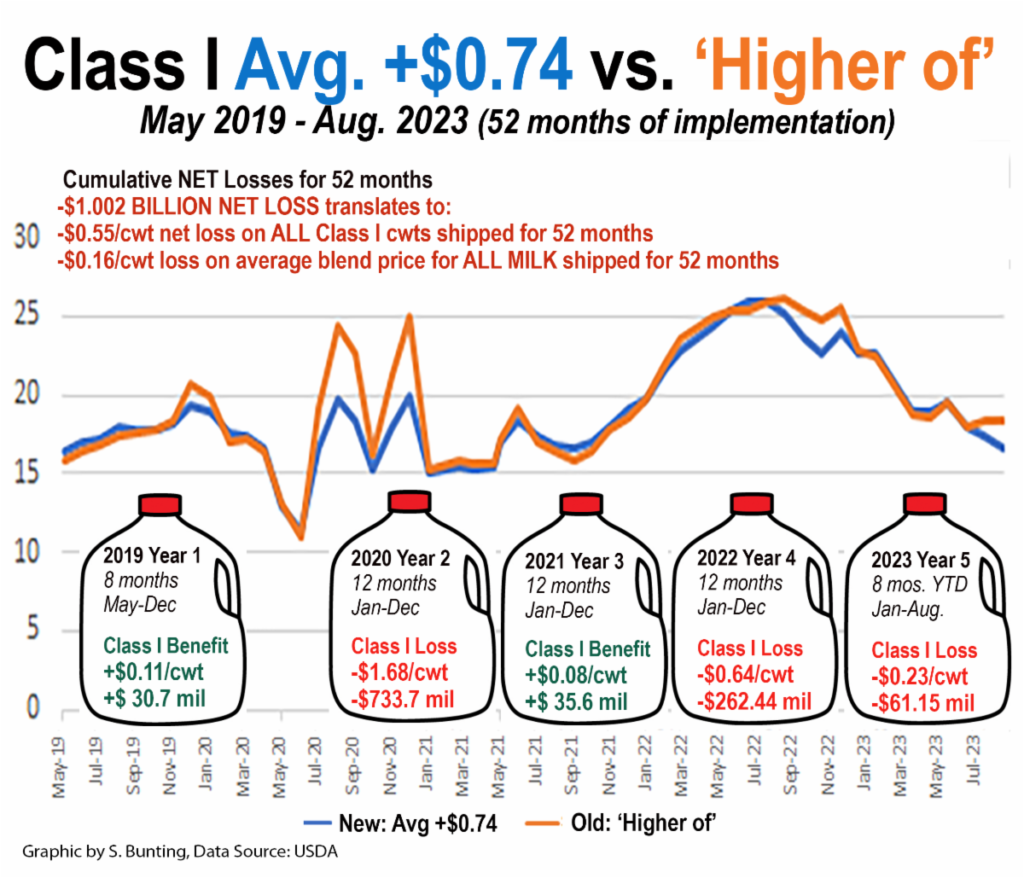
The net loss is projected to exceed $1 billion after August 2023 milk is paid for in September. Yesterday (July 19), USDA announced the advance Class I mover for August at $16.62. That’s 70 cents lower than July and $8.51 lower than a year ago.
“Milk checks this summer have plummeted. It didn’t need to be this bad,” said Fischer. “If the ‘higher of’ method was still in place, the August Class I mover would have been $18.29, not $16.62.”
With about 28% of all milk being used for Class I, farmers stand to lose 47 cents per hundredweight on all milk marketed next month just from this formula change. The loss to blended prices will be greater in some Federal Orders and less in others, and this does not include the impacts from depooling of higher-value Class II and IV milk.
American Dairy Coalition is asking Secretary Vilsack to hold a national hearing and prioritize the return to the ‘higher of’ for Class I pricing.
“We also hope Congress is ready to make a simple four-word change in the dairy title of the 2023 farm bill to make sure this gets done. Grassroots dairy farmers and countless organizations agree: Go back to the ‘higher of’ by the fastest means possible,” said Fischer.
The current pricing formula uses a 74-cent adjuster which caps increased revenue potential, but there is no revenue protection in the current milk pricing formula to protect dairy farmers from the formula’s downside risk.
USDA Publishes Recommended Decision Proposing Amendments to the Appalachian, Florida, and Southeast Federal Milk Marketing Orders
Please see the documents below for the info…
Jason Nierman
Market Administrator
Appalachian Marketing Area – FO 5
Florida Marketing Area – FO 6
Southeast Marketing Area – FO 7
Phone: (502)499-0040 ext 2222
Direct: (502)709-7856

ATTENTION:
Whole Milk For Healthy Kids Act Passes 330 to 99!
Please see the below press release from the office of Chairman of the House Agriculture Committee, Representative GT Thompson.
“We are pleased to see the Whole Milk for Healthy Kids Act gain passage in the House of Representatives. As farmers, we produce a wholesome product that our nation’s children should be able to choose. We thank Rep. Glenn ‘GT’ Thompson for his diligence toward the goal of students having the freedom to choose whole milk at school and making it possible for schools to offer this nutritional choice without the fear of losing federal meal and education dollars. Scientific evidence supports fuller fat milk and dairy as an excellent source of vital nutrients and other health benefits. While the natural milkfat aids absorption of key vitamins, it also brings flavor to the table so students can enjoy and benefit from all that milk has to offer them.”
– Walt Moore, Chairman of American Dairy Coalition
Bill allows whole milk to be served in schools nationwide
WASHINGTON, D.C. – U.S. Representative Glenn “GT” Thompson today, along with 229 of his colleagues, voted in favor of H.R. 1147, Whole Milk for Healthy Kids Act. This legislation, which passed the House with overwhelming bipartisan support, will restore the option of whole milk in school nutrition programs.
The Whole Milk for Healthy Kids Act of 2023 ensures that students receive the many health benefits and nutrients milk provides to young Americans, including better bone health, lower blood pressure, and reduced risk of cardiovascular disease or Type 2 diabetes. According to the most recent Dietary Guidelines for Americans, milk is a source of three-out-of-four under-consumed nutrients – calcium, potassium, and vitamin D. No other beverage naturally comes close to this level of nutritional value.
“Milk is an essential building block for a well-rounded and balanced diet, offering 13 essential nutrients and numerous health benefits. However, out-of-touch and outdated federal regulations have imposed restrictions on the types of milk students have access to in school meals,” Rep. Thompson said. “I am pleased to see my bipartisan Whole Milk for Healthy Kids Act pass out of the United States House of Representatives, and I ultimately look forward to restoring access to these nutritious beverages in schools across the country.”
“As a pediatrician, I have spent my career dedicated to the well-being of children and I know how important adequate nutrition is for growing kids,” Rep. Schrier, M.D. said. “A healthy diet early in life leads to proper physical growth, improved academic performance, and a strong foundation for healthy eating habits as an adult. Milk, which provides essential calcium, phosphorous, and vitamin D, is an essential part of that diet. Whole milk is a filling, nutritious option that will help ensure that our children are well-fed and healthy.”
“NMPF applauds Representatives Glenn “GT” Thompson and Kim Schrier for their leadership in increasing students’ access to crucial nutrition with their Whole Milk for Healthy Kids Act. This bipartisan measure helps address kids’ underconsumption of the vital nutrients milk provides. This bill allows schools to offer students healthful milk options that they are more likely to choose to drink by expanding the milk options schools can choose to serve to also include the most popular and also nutritious reduced fat and whole milk varieties. NMPF thanks Representatives Thompson and Schrier for spearheading this bipartisan, commonsense, widely supported solution to address students’ nutrition insecurity across the U.S.” – Jim Mulhern, President and CEO of National Milk Producers Federation
“IDFA applauds the strong bipartisan passage of the Whole Milk for Healthy Kids Act by the U.S. House of Representatives. This bill would allow schools to once again provide children with a wide variety of milk options that they will drink and that meet their individual needs—whether that be whole and 2%, low-fat milks, or lactose-free milks. Whole milk and reduced-fat milks alike provide children with 13 essential nutrients for growth, development, healthy immune function, and overall wellness. A wide majority of parents and medical and nutrition professionals know that offering these options increases school meal participation, reduces food waste, and provides nutritionally valuable school meals for children and adolescents. IDFA is grateful to Chairman Glenn “GT” Thompson, Rep. Kim Schrier, and the many other lawmakers who for years have championed this effort to reinstate the full suite nutritious milk options in school meals. We strongly urge the Senate to pass this legislation.” – Michael Dykes, D.V.M., President and CEO, International Dairy Foods Association
“Milk is an important building block for America’s children. Unfortunately, whole and 2% milk aren’t allowed in school lunch programs, limiting access to protein, calcium and vitamins at important times in children’s development. AFBF appreciates Rep. GT Thompson for his leadership on the Whole Milk for Healthy Kids Act of 2023, which will ensure schools can include all milk options to students.”– Zippy Duvall, President American Farm Bureau Federation
“Pennsylvania Farm Bureau members have waited for over a decade to see progress made on getting whole and two percent milk back in schools. Today, the House had a historic vote for the dairy industry by passing H.R.1147, the Whole Milk for Healthy Kids Act of 2023. Of course, our dairy farmers are going to see benefits of this legislation, but America’s students and families are also beneficiaries. School meals provide nutritional equity and food security. Low-income families who already are struggling to put dinner on the table, cannot afford to purchase the most expensive type of milk. However, medical research and pediatricians have attested that our children need the 21 essential minerals and 13 vitamins necessary for healthy development. We look forward to restoring nutritious beverage options in schools, growing the current pool of fluid milk consumers, and making the dairy industry more profitable for years to come.” – Chris Hoffman, President Pennsylvania Farm Bureau
“Today is a win for the kids, for the people, for the farmers. Whole milk choice in schools is clearly an improvement for our nation’s future leaders. House passage of the Whole Milk for Healthy Kids Act is a milestone we have worked for over the past decade since the federal government exiled whole milk, a nutritionally superior beverage choice, from school cafeterias based on outdated science. Over this time, we have seen school milk consumption decrease while volumes of discarded milk have increased along with the overweight and obesity trends in school-aged children. When students are able to choose milk they will love, they are then able to truly benefit from milk’s 13 essential nutrients and unique matrix for health. We can’t thank Chairman G.T. Thompson enough for his dedication in championing the idea that schools should be free to offer, and parents and children should be free to choose whole milk at school meals. In our educational outreach, we hear from school personnel, parents, and students, who are excited to be one step closer to nourishing growing minds and bodies with the nutritious and delicious option of whole milk.” – Bernie Morrissey, Chairman of the Grassroots Pennsylvania Dairy Advisory Committee and G.N. Hursh, Chairman of 97 Milk
“I’m delighted to see this change, which is backed by the most rigorous science showing that regular dairy is the healthiest for growing children. This law is a rare instance in nutrition where good science has triumphed over special interests.” – Nina Teicholz, Founder of The Nutrition Coalition
“We are pleased to see the Whole Milk for Healthy Kids Act gain passage in the House of Representatives. As farmers, we produce a wholesome product that our nation’s children should be able to choose. We thank Rep. Glenn ‘GT’ Thompson for his diligence toward the goal of students having the freedom to choose whole milk at school and making it possible for schools to offer this nutritional choice without the fear of losing federal meal and education dollars. Scientific evidence supports fuller fat milk and dairy as an excellent source of vital nutrients and other health benefits. While the natural milkfat aids absorption of key vitamins, it also brings flavor to the table so students can enjoy and benefit from all that milk has to offer them.” – Walt Moore, Chairman of American Dairy Coalition

Media Contact:
Laurie Fischer
920.288.7190
info@
ADC sends letter of support for
USDA hearing on NMPF petition
“Our farmers agree the Class I mover should be restored to the ‘higher of’ as soon as possible.”
GREEN BAY, Wis. — American Dairy Coalition sent a letter to Agriculture Secretary Tom Vilsack asking USDA to grant a hearing and call for proposals on the petition filed by National Milk Producers Federation.
“ADC appreciates the work of NMPF in putting together a package of proposals that is comprehensive and seeks to balance needs within the dairy sector,” said ADC CEO Laurie Fischer. “We specifically want to see the Class I mover addressed, and we applaud the work of the American Farm Bureau bringing stakeholders together and hosting the forum last October where returning the Class I mover to the ‘higher of’ method received universal consensus.”
As a grassroots dairy farmer organization, ADC has been focused on several of the items addressed in the NMPF proposals, especially the Class I mover.
“Our farmers agree this should be restored to the previous ‘higher of’ method as soon as possible. In the 50 months of USDA’s implementation of the ‘average of’ method, farmers lost $920 million in net cumulative Class I value,” said Fischer. “The asymmetric risk borne by farmers in the ‘average of’ method, and the impact on FMMO participation are additional concerns.”
The letter also urges USDA to understand make allowance updates should be based on mandatory audited cost surveys so that the cost data from all price-reporting plants are included, which relate to only those products that are used in the FMMO pricing formulas.
“If the value of a product is not captured and used in the milk component prices, then the cost to make that product should not be included in the embedded ‘credit’ known as the ‘make allowance,’” said Fischer. “All of the other products that are NOT captured in the end-product pricing formulas can be sold by processors at prices that cover their costs without coming back to the farmer for it.”
The NMPF proposals seeks to remove the 500-pound barrel cheese pricing from the FMMO formula for protein. “We’ve asked USDA if a bulk product replacement, such as 640-pound block cheese, could be evaluated,” she added.
The ADC letter to Vilsack expresses support for raising standard milk component levels in classified pricing to more accurately reflect the higher components in milk today. However, the letter points out that only the protein and skim solids are included in the NMPF proposal. Raising the standard butterfat levels are excluded and would not change how farmers are paid, but it could be evaluated for updating as relevant to how minimum prices are communicated and compared on net milk checks.
With concerns farmers have about price discovery and milk check transparency, ADC is also looking into potential legislative or administrative changes that could expand reporting. “A farmer should be able to follow market trends, understand in real time the value of their milk, and be able to look at their final payment after four to six weeks of shipping milk out the driveway and clearly see how it was calculated to determine their net payment,” said Fischer.
Click here to read the letter
How would FMMO changes affect milk prices?
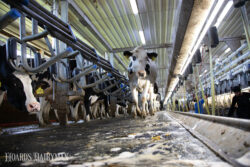
A recent analysis of some of the proposed changes to the Federal Milk Marketing Order (FMMO) system was conducted to quantitatively assess what these changes would mean to U.S. milk prices. At the time it was conducted, the analysis assumed the FMMO changes would begin in 2023, but with the FMMO hearing still ongoing, any final changes will not occur until sometime in 2024.
The following scenarios were run based on proposed FMMO changes by the National Milk Producers Federation:
1. Increase the make allowances in the component price formulas for butter to $0.21 per pound, for nonfat dry milk to $0.21 per pound, for cheese to $0.24 per pound, and for dry whey to $0.23 per pound;
2. Discontinue the use of barrel cheese in the protein component price formula;
3. Return to the “higher-of” Class I skim milk price mover;
4. Update the milk component factors for protein, other solids, and nonfat solids in the Class III and Class IV skim milk price formulas;
5. Update the Class I differential pricing surface throughout the United States, and
6. All five options listed above together.
Minor effects
The table lists the changes in U.S. All-Milk prices from each of the five alternatives and the combined effect. U.S. All-Milk prices are $0.09 per hundredweight higher in the first year of the analysis relative to the baseline but moderate as milk production grows relative to the baseline.
Lower U.S. All-Milk prices under the higher make allowances for dairy products result from lower Class III and Class IV milk prices. In contrast, the slightly higher U.S. All-Milk prices result from returning to the “higher of” calculation for the Class I mover price.
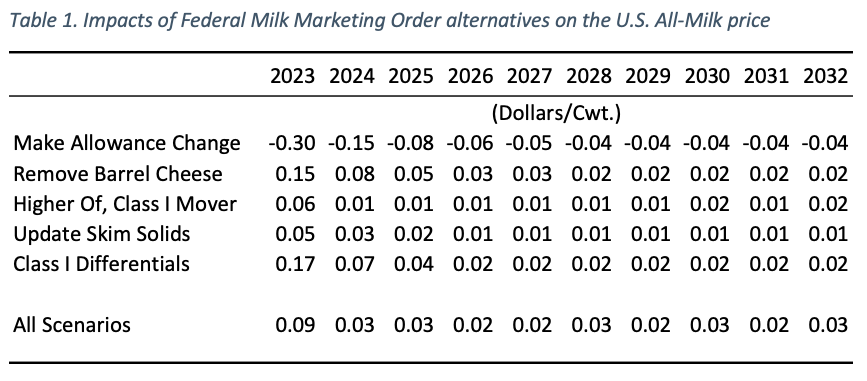
The results show that there are only small effects in producer milk prices given the changes in federal order formulas assumed relative to current federal order provisions. In some cases, changes offset one another.
The exact path of the dairy industry in the next several years could lead to larger or smaller impacts of these federal order changes than reported here. This analysis is not intended to determine what policy changes should occur but only to show the quantitative impacts of the proposed changes.
Grant Information Session for Two New Grants through SDBII
Hello all,
The grant application period is now open for two new grant opportunities through the Southeast Dairy Business Innovation Initiative (SDBII).
The Farm Infrastructure Improvement Grant will provide funds for projects that increase milking parlor throughput to reduce labor costs, improve animal comfort to increase production, and facilitate milk marketing efficiencies by expanding storage and ease of transportation of raw milk. Applicants can apply for up to $100,000.00 in reimbursable funds through this grant program. $3.2MM in award funding will be available in this category and around 32 grant awards will be funded under this call. Applicants must provide a cash match of 25% on eligible expenses. Find more information on eligibility and how to apply at: https://tiny.utk.edu/farm-infrastructure.
The Precision Technology Investment Grant will support the utilization of new and existing technologies that help farmers track and manage key farm metrics to maximize the impact of inputs like labor, feed, and fertilizer and improve farm efficiency. Applicants may apply for up to $200,000.00 in funding from this grant program. $2.13MM in award funding will be available in this category and at least 10 grant awards will be made. Applicants must provide a cash match of 25% of eligible project expenses. Find more information on eligibility and how to apply at: tiny.utk.edu/precision-technology-grant.
Applicants may apply to either the Precision Technology and Management Grant or the Farm Infrastructure Improvement Grant in a calendar year, but not both. Both grants are due 5:00pm/ET on June 2, 2023.
Due to a birth in the SDBII family, the original info session scheduled for Thursday March 2 from 2:00pm to 3:00pm ET has been rescheduled. Please join us on Thursday, March 9, 2023 from 11:00am-12:20pm/ET via Zoom. If you registered for the March 2nd presentation, you are automatically registered for the rescheduled meeting For those who register but cannot attend, a recording of the information session will be shared. You can register here: tiny.utk.edu/SDBII-Farm-Grant-Registration
Dr. Elizabeth Eckelkamp, PhD PAS
SDBII Program Director
Dairy Extension Specialist, Assistant Professor
University of Tennessee Institute of Agriculture
Animal Science Department
244 C.E. Brehm Animal Sciences Building
2506 River Drive, Knoxville, TN 37996
office: (865) 974-8167
cell: (337) 718-9764
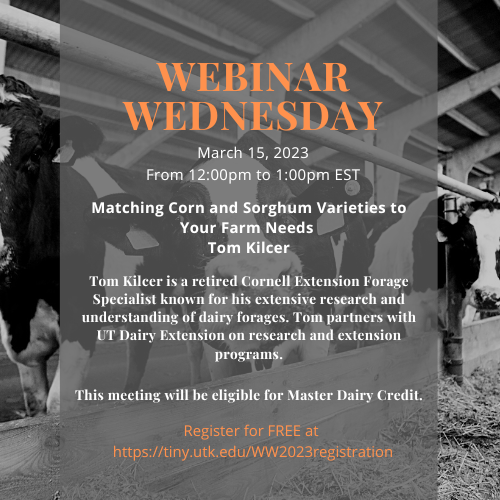
Hello all!
March Webinar Wednesday is next week March 15, 2023 from 12pm to 1pm ET (11:00am to 12:00pm CT). Tom Kilcer is a retired Cornell Extension Forage Specialist known for his extensive research and understanding of dairy forages. Tom partners with UT Dairy Extension on research and extension programs. This meeting will count toward Master Dairy Credit for 2023. If you have not done so and would like to attend, please register for FREE at
https://tiny.utk.edu/WW2023registration
to receive meetings links and additional information. For any agents needing In-service credit for any Webinar Wednesdays in 2023, please register in Super as well.
Dr. Elizabeth Eckelkamp, PhD PAS
SDBII Program Director
Dairy Extension Specialist, Assistant Professor
University of Tennessee Institute of Agriculture
Animal Science Department
244 C.E. Brehm Animal Sciences Building
2506 River Drive, Knoxville, TN 37996
office: (865) 974-8167
cell: (337) 718-9764

At Press: TN’s John Rose Appointed to House Ag; Other Farm Bill News
Jan. 17, 2023: ‘House Ag GOP Members Named, Stabenow Vows to Get Farm Bill Done,’ by Chris Clayton, for Progressive Farmer DTN. Rep. John Rose (TN-06) has been appointed to the House Ag Committee. Rose joins a slate of new Republican members appointed for the 118th Congress, a Congress which will determine the next Farm Bill. No news yet on Democrat members.
Foreign Ownership of Farmland – Percentages Rising, Recent Accelerations!
“First of the Year” Business Evaluations are taking place for many, and for those in this network, the value of farmland, both owned and rented, is one of the basic factors affecting both our balance sheets and the long-term viability of our farm businesses. The past couple of years have seen an extraordinary amount of real estate activity of both sales of farmland and extended leases of neighboring farmland to new entities, coupled with an increase in lease values.
With each transaction, decisions affecting land located in our communities are increasingly made by people or entities who do not live in our communities, who may not share the same values and life priorities, and in many cases – who have never set foot on the land and properties for which they make decisions.
The questions of the day are:
- How will we prepare ourselves for the decisions concerning land activity in our neighborhoods made by these ‘outsiders?’
- What impact will be the affect on long-term national food security?
- What are questions I need to be asking myself about my own farm operation about activity in my neighborhood?
- And a host of other questions will be posed later as this issue evolves.
Read below for several articles and reports which provide land transaction information. No doubt, others will follow in the near future.
Articles of Interest on the Farmland Topic:
Dec. 13, 2022: ‘Florida Agriculture Commissioner Wants to Ban Sale of Farmland to Foreign Entities,’ by Andrew Powell, for Just the Nation.
Concerns with ‘what is being done’ with the land after purchase.
Food costs and supply are being considered – will inflation and availability of food become a concern?
Percentage of foreign ownership are accelerating: In 1980, 0.8% was owned by foreign entities; in 2020, that percentage had risen to 5.8%
Jan. 4, 2023: “Florida Lawmakers Look to Limit Foreign Ownership of Farmland,” by Jim Turner, for the Orlando Sentinel. Legislators will seek a ‘right number’ to protect food sovereignty.
The 2020 REPORT: “Foreign Holdings of US Agricultural Land,” published by USDA-Farm Service Agency
- 37.6 Million Acres of US Farm and Forest Land held by foreign entities; this is 2.9% of all privately held agricultural land, and 1.7% of all land in the United States
- From 2019 to 2020 reports alone, there was a 2.4 Million acre increase in foreign ownership of ag lands!
- A summary of annual USDA reports can be found here.
Related: “Farmland Ownership and Tenure,” a USDA-ERS report, evaluating ownership vs. rented, and other pertinent topics affecting the future of agriculture land. Just over 60% is owner-operated, approximately 39% was leased from non-farming owners/decision makers.
Bill filed in Tennessee Legislature – What has occurred in your state?
January 11: HB 0040, Tennessee Legislature: Bill Introduced in the Tennessee Legislature concerning foreign ownership of farmland in the state of TN. This is a 6-pg. pdf, and can be printed if a reader wishes. The bill language as it now stands refers to ‘aliens, residents, non-residents,’ with some references to foreign businesses. CAUTION: This bill has not been thoroughly vetted, analyzed, nor studied, but it has been introduced.
December 19, 2022: “Farmland Values Smash Records in 2022, Undeterred by Interest Rates,” by Katie Dehlinger, for DTN / Progressive Farmer. The Kansas City Federal Reserve is credited with noting interest rates for farmland loans were between 6.-6.75%, and that the majority of farmland purchases were farm owner/operators, followed by investors. Tracts have sold as high as $27-30,000 acre, with most less than 1/2 that. Values have gone up 20% in 2022, with an increase of 10-15% predicted for 2023.
January 14, 2023: “Bill Gates Asked: Why He’s Buying So Much Farmland?” by AJ Fabino, for Benzinga. Bill Gates responds to the all of the media speculation off 2022 about his purchases and ownership of about 275,000 acres of US Farmland. He noted that’s only 1/4000 of all of American farmland, equal to 25% of the state of Rhode Island.
January 11, 2023: ‘Bill Gates Defends Farmland Purchases,’ by Sarah Jackson, published at The Insider, a web-based publication. “Gates says “there’s not some grand scheme involved – it’s a good investment.”
EVENTS:
(Scroll for Details on Each Event)
January 12 through March 16: Tennessee Master Horse Certification Program, an ongoing series of webinars. Late registrations will be taken until Friday, January 20.
January 19 (Thurs): East TN Grain Conference, (Click to register) Athens, TN – McMinn Higher Education Center, Athens
January 20 (Fri): TN Dairy Producers Annual Meeting, In Person Lebanon, TN To register for Zoom Attendance, Click Here
January 24 – February 7: “Tennessee Master Farm Manager Webinars
- 50% Cost Share TAEP Credits Available for a Number of TAEP Sectors
- Mail-In Registration Available – Address on the Graphic Below
- Online Registration & Session Leaders – Found by hitting this link
January 30: Tennessee Barley Conference, Tullahoma, TN
Cory Vineyard, AgCentral Agronomist and Barley Grower, speaking
January 31: Deadline, Dairy Margin Coverage (DMC) Insurance Policies
February 16-18: Pick TN Conference, Cool Springs Marriott, Franklin, TN
February 28 – March 1: KY Dairy Partners Meeting; Bowling Green, KY
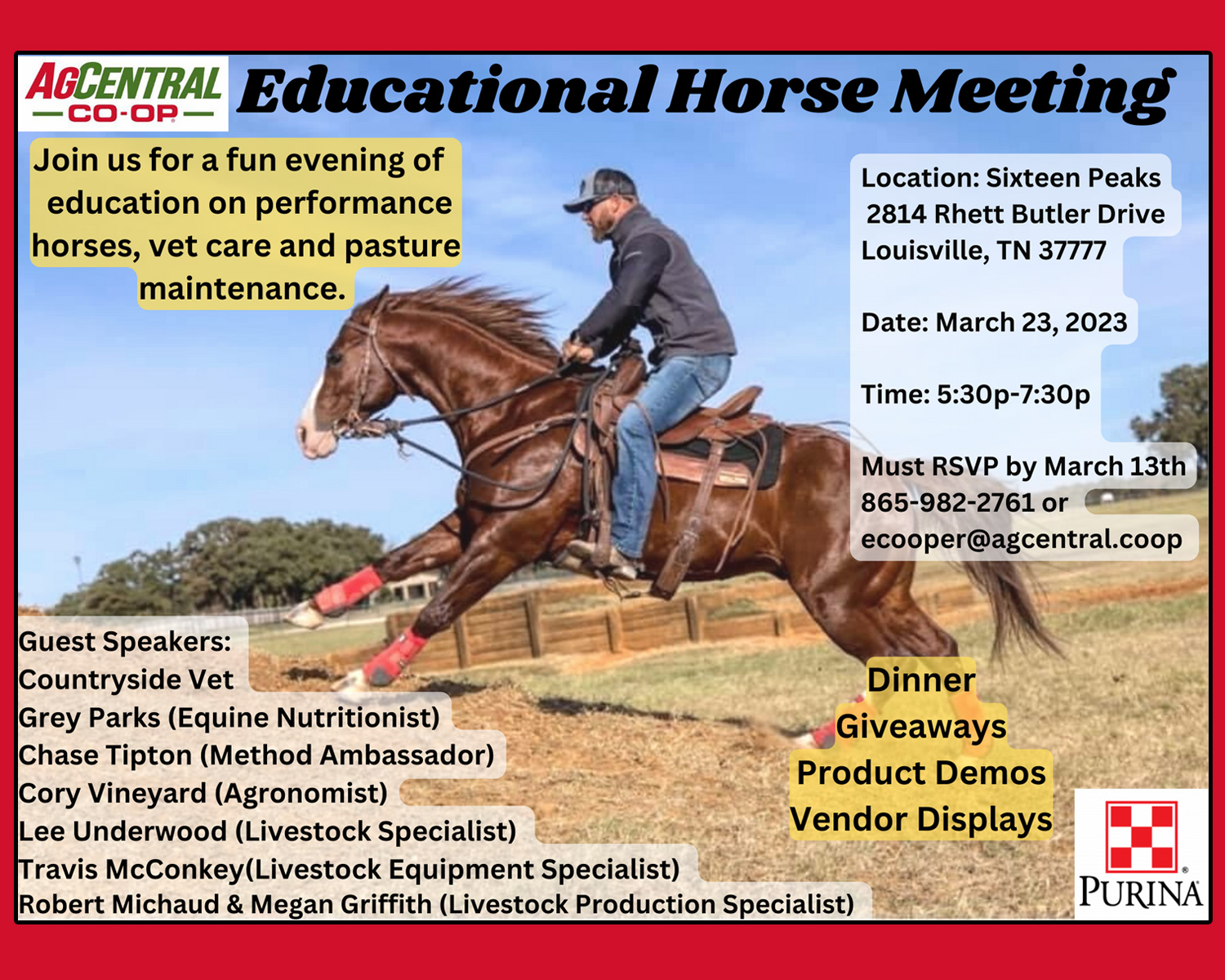
March 23: Educational Horse Meeting, 16 Peaks Cattle Company, coordinated by AgCentral. Check flyer below and please RSVP by March 13th
Dairyproducer.com
January 2023 Newsletter
Dairy News Headlines:
Podcast: Falling Prices, Rising Opportunities on Tap for 2023
Edge Dairy Farmer Co-Op Unveils Its 2023 Legislative Priorities
MSU researcher says anaerobic digesters are ‘the wave of the future’
New Report: California is Pioneering a Pathway to Significant Dairy Methane Reduction
Fourth round of compensation now available for Canadian dairy farmers
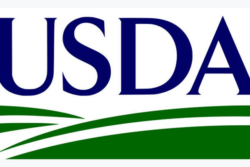 USDA Announces Major Program To Benefit Ag Producers
USDA Announces Major Program To Benefit Ag Producers
Getting the Dairy Herd You Want Through Improved Genetic Selection
Foreign Land Ownership Reporting
New reporting requirements coming for foreign landowners in the US. Please send this to everyone you know and work with who needs to be aware.
The Courier January 2023
(Click below to view / download)
Tennessee Dairy Producers Association Annual Meeting
(Click below to view/download)
Kentucky Dairy Partners Annual Meeting
The Kentucky Dairy Partners Annual Meeting will be held February 28 – March 1, 2023 at the Sloan Convention Center in Bowling Green, Ky.
We look forward to seeing you all for the 2023 KDP annual meeting!
Click on the images below to view the invitation letter and download registration form.
Mitloehner and The Clear Center Strike Back
Recently, Professor Frank Mitloehner, Ph.D., an air quality specialist in the Department of Animal Science at UC Davis, came under fire in the New York Times and Green Peace articles. In articles, he was accused of receiving funding from animal agriculture. In a recent blog post, Dr. Mitloehner sets the record straight.
Full disclosure: I work to reduce the footprint of animal agriculture
My response to The New York Times and Greenpeace articles on CLEAR Center Funding
October 31, 2022
By Frank Mitloehner
There’s a shocking revelation out there, and I am at the heart of it. Are you prepared for this?
Animal scientists work with animal agriculture. That’s it. That’s the exposé, the conspiracy that so many activists and journalists want to share with you.
Oh, if you want more, try this on for size: Agriculturists work together to be more sustainable.
If you work in agriculture, these statements probably aren’t surprising. In fact, it would likely be concerning if that were not the case.
Sustainability issues are too big to be tackled in silos – metaphorically speaking, of course. One way the sector has come together to further sustainability is through the CLEAR Center.
Keep Reading
American Dairy Coalition | www.americandairycoalitioninc.
Connect with us
American Dairy Coalition Inc
PO Box 10976
Green Bay, WI 54307-0976
Dairy Webinar Wednesday 2021
Our next Webinar Wednesday will be next Wednesday, September 8, 2021 at 12pm EST/11am CST. Dr. Charley Martinez, an Extension Specialist in the Agricultural and Resource Economics Department, will be providing an overview of risk management tools available to dairy farmers and their potential successes. This meeting will count toward Master Dairy Credit for 2021. The agenda is also attached. Please register for FREE at https://ww2021.questionpro.com to receive meetings links and additional information.
Elizabeth Eckelkamp, PhD PAS
Dairy Extension Specialist, Assistant Professor
University of Tennessee Institute of Agriculture
Animal Science Department
244 C.E. Brehm Animal Sciences Building
2506 River Drive, Knoxville, TN 37996
office: (865) 974-8167
cell: (337) 718-9764
Dairy Margin Coverage and Dairy Gauge Workshops
Join us for these upcoming workshops on the Dairy Margin Coverage Program offered by the USDA Farm Service Agency and the Dairy Gauge Decision Tool offered through UT Dairy and the UT MANAGE Program. See below for the workshop tour schedule. Register online at: https://dmc.questionpro.
PLEASE NOTE: We are monitoring the current COVID19 situation closely and will provide a virtual option if necessary.
(Click below to view/download)

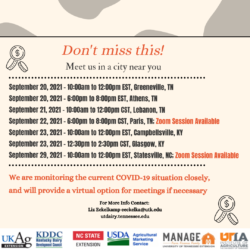
Best,
Shep Stearns
Value-Added Dairy Extension Specialist
University of Tennessee Institute of Agriculture
Animal Science Department
345 C.E. Brehm Animal Sciences Building
2506 River Drive, Knoxville, TN 37996
sstearn1@utk.edu
cell: (860) 595-6053
Hello all,
Sign up now for Assessing Value-Added Dairy Business Expansion Session 2. All are welcome to join, including those who are not in the dairy industry. Many of the topics will be useful to those interested in all types of value-added agriculture and business expansion.
These workshops are being offered by the Center for Profitable Agriculture in partnership with the Southeast Dairy Business Innovation Initiative (SDBII), Middle Tennessee State University, and PENN State Extension. The topics and dates of the two remaining workshops are as follows:
Wednesday, November 16th
- Case Study: Growing a Value-Added Dairy Enterprise at MTSU Creamery
Wednesday, November 30th
- Tools for Analyzing Feasibility and Profitability
You can register to join us by clicking here.
For those who attend all three sessions, this workshop series fulfills one Tennessee Agricultural Enhancement Program (TAEP) special educational requirement in Agritourism, Fruits & Vegetables, or Value-Added. For additional information regarding educational programs for TAEP requirements, please contact Grant Pulse from Tennessee Department of Agriculture at 615-837-5347.
A recording of the first session can be accessed here: https://youtu.be/Lx1KuW3OLoE
Shep Stearns
Value-Added Dairy Extension Specialist
University of Tennessee Institute of Agriculture
Animal Science Department
345 C.E. Brehm Animal Sciences Building
2506 River Drive, Knoxville, TN 37996
cell: (860) 595-6053
Check out the UT Value-Added Dairy webpage for updates and educational resources
Transportation Credit Provisions: Appalachian, Southeast
and Florida Orders
USDA has received a proposal from the Dairy Cooperative Marketing Agency to amend the inter-market Transportation Credit Balancing Fund provisions of the Appalachian and Southeast orders and adopt new distributing plant delivery credit provisions for the Appalachian, Florida, and Southeast orders. Per regulation, USDA has 30-days from receipt of proposal to deny the proposal, request more information, or issue an Action Plan. USDA’s response will be posted online.
The proposal is available at: https://www.ams.usda.gov/rules-regulations/moa/dairy/petitions
Jason Nierman
Market Administrator
Appalachian Marketing Area – FO 5
Florida Marketing Area – FO 6
Southeast Marketing Area – FO 7
Phone: (502)499-0040 ext 2222
Direct: (502)709-7856
Anhydrous Ammonia – What Workers Need to Know Anhydrous ammonia is a valuable farm input that will be applied this November. Safety should be top of mind when transporting anhydrous ammonia to the field and applying it. This message is intended for those that use anhydrous ammonia in their operation and for others to be aware of its characteristics.
What Do You Make Sure Workers Know? Ammonia training and I must add “retraining” needs to be provided to family members, full-time, part-time/seasonal, and especially newly hired employees. Why do I emphasize retraining? The intermittent use of working around anhydrous ammonia can allow us to forget some key details, combat complacency, and keep safety top of mind. Training for anhydrous ammonia aims to reduce “human error” and lower the likelihood that a release will occur. Be informed, be safe, and follow procedures you’ve been taught. |
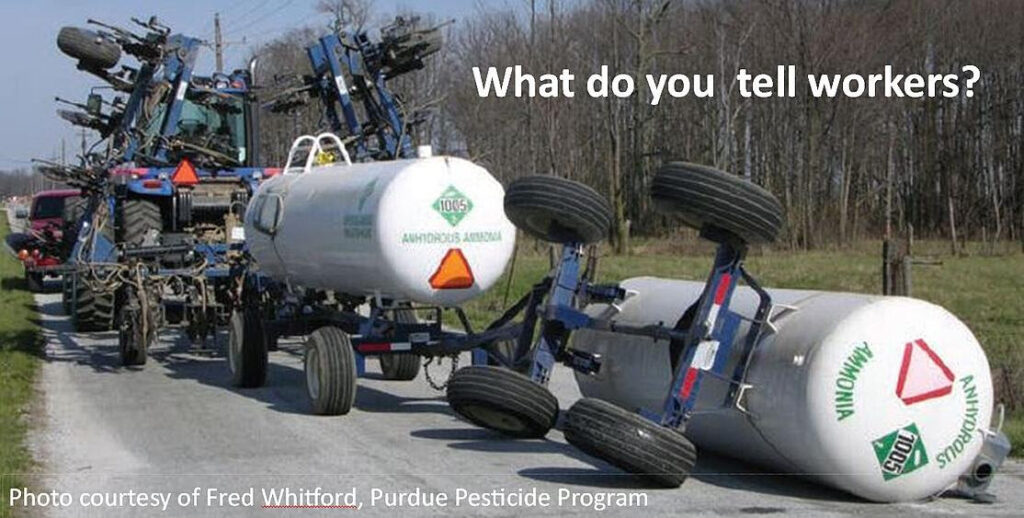 |
What Must Workers Understand? You can smell it. – anhydrous ammonia is colorless but has a recognizable odor. Pay attention to your senses, if you smell it, you should identify the source and do not take breathing in anhydrous ammonia lightly.
Strong Affinity for Water – Anhydrous ammonia (NH3) takes water from anything it can come in contact with. When in contact with the body it will seek the water in your eyes, respiratory system, and skin. Living tissue is dehydrated quickly and cells are destroyed on contact. Any tissue containing moisture is chemically burned. Skin that is chemically burned by NH3 is killed and is not capable of healing or replacing itself. Damaged tissue must be removed surgically, results are disfiguring.
Lighter Than Air – Anhydrous Ammonia vapor is lighter than air, which means it moves up into the atmosphere at the point of release. However, high relative humidity traps the vapor. When ammonia encounters moisture in the air, the vapor becomes heavier and hangs lower to the ground. Can settle in low areas like road ditches, valleys, etc.
PPE, Goggles & Gloves – Wearing PPE such as unvented goggles and a full-face shield will protect your eyes from an unexpected release. Rubber gloves impervious to ammonia will protect you from the freezing nature of NH3 and from skin contact. It is always suggested to wear a heavy-duty, long-sleeved shirt with long pants and a respirator.
First Aid – Water, Water, Water – NH3 requires large quantities of water to neutralize its caustic effects on moist areas of the body. Start water treatment immediately. Chemical burning starts instantly and becomes worse over time. Continue to flush with water till the victim is delivered to medical attention. Don’t underestimate the importance of water…..don’t be without it. |
 |
Not So Obvious Things Workers Should Know To put an anhydrous ammonia transport into perspective, 3 years ago there was a release near Chicago in a residential area. The release sent 83 persons to local emergency departments, 14 were hospitalized, it engaged 129 fire and law enforcement personnel, and involved a shelter-in-place for a 1-mile radius. We must pay attention to detail and sometimes accidents happen. This accident could have been avoided.
Never Transport Anhydrous Ammonia Through Town – You have to think of the consequences like the story above and putting the community at risk. Always seek to find a route around town and residential areas even if it takes quite a bit longer. A release will have negative consequences for your operation. Talk to workers about specific routes they should take to fields. Never park near roadways or buildings and do not transport through populated areas.
No Additional Stops – Workers should only tow anhydrous tanks from the retailer to the field. Stopping to get food, pick up parts, acquire supplies, or visit an ATM is taking that tank into a public area. It is tempting but not allowed. It is a violation of federal law to stop and leave a nurse tank and towing vehicle unattended while en route to the final destination.
Observe the 25 mph Speed Limit – Anhydrous ammonia tanks are outfitted with a slow-moving vehicle sign that tells motorists and law enforcement that you are moving at 25 mph or less. Check the maximum speed rating on the tank’s tires. Most are rated at 25 mph, and exceeding it can lead to blowouts. Make sure to discuss speed with workers and temptations to go faster to deliver the tank. It’s not a typical trailer, it’s a trailer with a placarded hazardous material.
Safety Chains and Clips – Always ensure safety chains are crossed and secured and use a properly rated hitch pin with a clip or keeper….every time. This goes for the tractor, truck, and when towing two nurse tanks together. Always perform a walk-around inspection before pulling out onto the roadway.
Stopping Distance – Always maintain a safe speed (25 mph or below) and increase the stopping distance with a partial or heavy load. Workers need to also account for the type of towing vehicle. A half-ton pickup doesn’t have the same braking equipment as a 3/4 ton or a ton truck has and must allow for more following and stopping distance.
Make Sure the Farmer’s Valve is Completely Closed – Always turn the tank valves off and disconnect hoses before pulling onto a public roadway.
Know Wind Direction – Always work upwind from a release.
Reporting of Anhydrous Ammonia Release – Federal and state regulations require you to immediately report an anhydrous ammonia release of more than 18 gallons or 100 pounds into the atmosphere. First, take care of any injured people and get them to a safe area. Then call 911 and be sure to state that it is an anhydrous ammonia release. This signals to first responders that this is a hazmat incident and how to respond accordingly. Whoever is in possession of the tank is responsible for notifying the 3 agencies; 911, National Response Center (89-00-424-8802), Emergency Management Agency, and the local Emergency Planning Committee within 15 minutes. There are penalties if you do not call.
In Conclusion This email covers some essentials that workers need to know when working around anhydrous ammonia. Good Day’s Work provides a class on Anhydrous Ammonia training. Be sure to provide training/retraining and discuss with employees what you want them to know. Have them repeat it back to you so you know they’ve got it. This training is to reduce human error, lower the likelihood of a release and know what to do in case a release occurs. A great resource is a Purdue Extension publication PPP-140 on Anhydrous Ammonia.
Enjoy this fall season. Have a safe and productive harvest.
Thank You for looking out for the safety of Your Team!
Marty Huseman
|
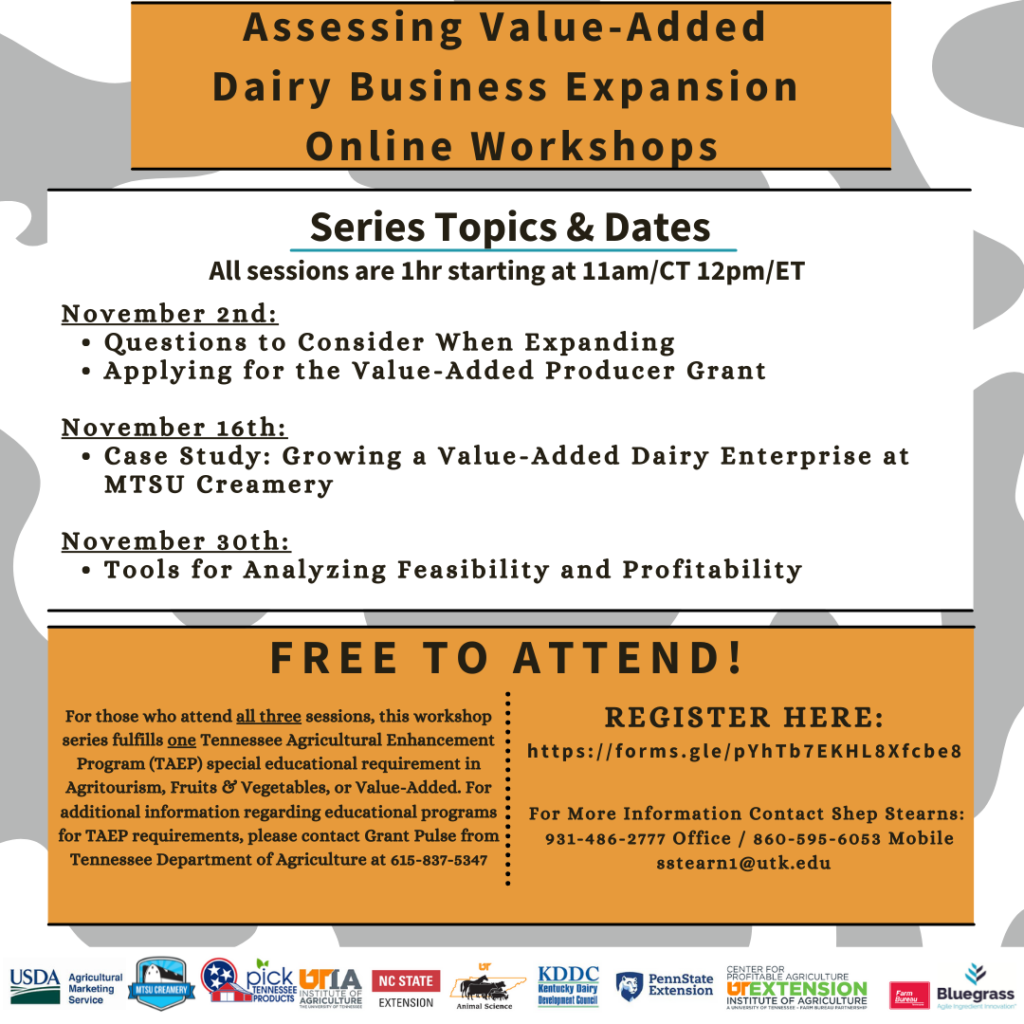
Hello all,
The Center for Profitable Agriculture in partnership with the Southeast Dairy Business Innovation Initiative (SDBII), Middle Tennessee State University, and PENN State Extension is offering a free online series of workshops titled Assessing Value-Added Dairy Business Expansion. Each session will run for one hour starting at 11am/CT 12pm/ET. All are welcome to join, including those who are not in the dairy industry. Many of the topics will be useful to anyone interested in all types of value-added agriculture and business expansion. The topics and dates of the workshops are as follows:
Wednesday, November 2nd
- Questions to Consider When Expanding
- Applying for the Value-Added Producer Grant
Wednesday, November 16th
- Case Study: Growing a Value-Added Dairy Enterprise at MTSU Creamery
Wednesday, November 30th
- Tools for Analyzing Feasibility and Profitability
You can register to join us by clicking here.
For those who attend all three sessions, this workshop series fulfills one Tennessee Agricultural Enhancement Program (TAEP) special educational requirement in Agritourism, Fruits & Vegetables, or Value-Added. For additional information regarding educational programs for TAEP requirements, please contact Grant Pulse from Tennessee Department of Agriculture at 615-837-5347.
The first session is next Wednesday, so sign up today!
Best,
Shep Stearns
Value-Added Dairy Extension Specialist
University of Tennessee Institute of Agriculture
Animal Science Department
345 C.E. Brehm Animal Sciences Building
2506 River Drive, Knoxville, TN 37996
cell: (860) 595-6053
Check out the UTValue-Added Dairy webpage for updates and educational resources
Exciting new educational opportunity focusing on Agricultural!!
Welcome to STEMsational Ag! The Virtual Farm!
Middle Tennessee State University’s Center for Health and Human Services, in partnership with the School of Agriculture’s Fermentation Department, presents “STEMsational Ag: The Virtual Farm”.
Where does our food and clothing come from? There’s a lot more to Agriculture, the system that provides us with crops we eat and fibers we use to make clothing, than most people are aware of. Students will learn about this amazing modern industry with roots that stretch back to the beginning of civilization through the Modules and Units that cover a wide range of topics. Everyone is sure to learn something new!
All Modules and Units are absolutely FREE! They were created by experts and open the door for you to learn about food preservation, backyard produce cultivation, farm animals, and the importance of bees, just to name a few topics. Your very own home kitchen and yard will be your personal learning laboratories. The curriculum includes STEM topics including food preparation and preservation. The hands-on activities will build practical skills for students without requiring parents or educators to have first-hand knowledge for successful implementation and instruction. These activities will encourage the maximization of limited resources while empowering students, parents, and teachers to take control of their food management during uncertain times. Be sure and check out the “Dairy in Kitchen, Fuel Your Good with Delicious Dairy” that The Dairy Alliance created.
Just click the image below to register and get started! Please share with all educational departments in your district!
Please see below press release from USDA:
USDA Opens 2022 Signup for Dairy Margin Coverage, Expands Program for Supplemental Production
Program Enhancements Improve Feed Cost Calculations
WASHINGTON, Dec. 8, 2021 – As part of the Biden-Harris Administration’s ongoing efforts to support dairy farmers and rural communities, today the U.S. Department of Agriculture (USDA) opened signup for the Dairy Margin Coverage (DMC) program and expanded the program to allow dairy producers to better protect their operations by enrolling supplemental production. This signup period – which runs from Dec. 13, 2021 to Feb. 18, 2022 – enables producers to get coverage through this important safety-net program for another year as well as get additional assistance through the new Supplemental DMC.
Supplemental DMC will provide $580 million to better help small- and mid-sized dairy operations that have increased production over the years but were not able to enroll the additional production. Now, they will be able to retroactively receive payments for that supplemental production. Additionally, USDA’s Farm Service Agency (FSA) updated how feed costs are calculated, which will make the program more reflective of actual dairy producer expenses.
“Dairy Margin Coverage is a critical safety net for producers, and catastrophic coverage is free. These DMC updates build on other efforts of the Biden-Harris Administration to improve DMC and other key USDA dairy programs,” Under Secretary for Farm Production and Conservation Robert Bonnie said. “We encourage dairy producers to make use of the support provided by enrolling in supplemental coverage and enroll in DMC for the 2022 program year.”
Supplemental DMC Enrollment
Eligible dairy operations with less than 5 million pounds of established production history may enroll supplemental pounds based upon a formula using 2019 actual milk marketings, which will result in additional payments. Producers will be required to provide FSA with their 2019 Milk Marketing Statement.
Supplemental DMC coverage is applicable to calendar years 2021, 2022 and 2023. Participating dairy operations with supplemental production may receive retroactive supplemental payments for 2021 in addition to payments based on their established production history.
Supplemental DMC will require a revision to a producer’s 2021 DMC contract and must occur before enrollment in DMC for the 2022 program year. Producers will be able to revise 2021 DMC contracts and then apply for 2022 DMC by contacting their local USDA Service Center.
DMC 2022 Enrollment
After making any revisions to 2021 DMC contracts for Supplemental DMC, producers can sign up for 2022 coverage. DMC provides eligible dairy producers with risk management coverage that pays producers when the difference between the price of milk and the cost of feed falls below a certain level. So far in 2021, DMC payments have triggered for January through October for more than $1.0 billion.
For DMC enrollment, producers must certify with FSA that the operation is commercially marketing milk, sign all required forms and pay the $100 administrative fee. The fee is waived for farmers who are considered limited resource, beginning, socially disadvantaged, or a military veteran. To determine the appropriate level of DMC coverage for a specific dairy operation, producers can use the online dairy decision tool.
Updates to Feed Costs
USDA is also changing the DMC feed cost formula to better reflect the actual cost dairy farmers pay for high-quality alfalfa hay. FSA will calculate payments using 100% premium alfalfa hay rather than 50%. The amended feed cost formula will make DMC payments more reflective of actual dairy producer expenses.
Additional Dairy Assistance
Today’s announcement is part of a broader package to help the dairy industry respond to the pandemic and other challenges. USDA is also amending Dairy Indemnity Payment Program (DIPP) regulations to add provisions for the indemnification of cows that are likely to be not marketable for longer durations, as a result, for example, of per- and polyfluoroalkyl
Additional details on these changes to DMC and DIPP can be found in a rule that will be published soon in the Federal Register. This rule also included information on the new Oriental Fruit Fly Program as well as changes to FSA conservation programs. A copy of the rule is available here.
More Information
To learn more or to participate in DMC or DIPP, producers should contact their local USDA Service Center. Service Center staff continue to work with agricultural producers via phone, email and other digital tools. Because of the pandemic, some USDA Service Centers are open to limited visitors. Producers should contact their Service Center to set up an in-person or phone appointment. Additionally, more information related to USDA’s response and relief for producers can be found at farmers.gov/coronavirus.
USDA touches the lives of all Americans each day in so many positive ways. In the Biden-Harris Administration, USDA is transforming America’s food system with a greater focus on more resilient local and regional food production, fairer markets for all producers, ensuring access to healthy and nutritious food in all communities, building new markets and streams of income for farmers and producers using climate smart food and forestry practices, making historic investments in infrastructure and clean energy capabilities in rural America, and committing to equity across the Department by removing systemic barriers and building a workforce more representative of America. To learn more, visit www.usda.gov.
Tennessee Dairy Producers Association
PO Box 1604
Lewisburg TN 37091
Phone: 931-698-0243 / info@tndairy.org
|
|
American Dairy Coalition applauds Senators Gillibrand, Collins and Leahy on the introduction of the bipartisan Dairy Pricing Opportunity Act of 2021
GREEN BAY, Wis. — The American Dairy Coalition applauds Senators Kirsten Gillibrand (D-NY), Susan Collins (R-ME) and Patrick Leahy (D-VT) for introducing the bipartisan Dairy Pricing Opportunity Act of 2021 today in the United States Senate. The bipartisan legislation launches national hearings on Federal Milk Marketing Order (FMMO) pricing methods.
Specifically, the bill requires the Secretary of Agriculture to initiate the process of holding FMMO hearings within six months on “the views and proposals of producers and the dairy industry on Class I skim milk price, including the ‘higher of’ formula… and any other views and proposals on the Class I skim milk price and such other matters as the Secretary of Agriculture considers appropriate.”
“When the dairy pricing system isn’t working for farmers, the economic ramifications are felt across the country. I heard from producers across the industry firsthand during my subcommittee hearing on dairy pricing, and the message was clear — our dairy pricing system is inadequate, out of date, and working against producers. This bill is a great first step, and I look forward to continuing efforts on broader FMMO modernization,” said Senator Gillibrand, dairy subcommittee chair in a statement.
Senator Collins noted that “The Dairy Pricing Opportunity Act would help restore some stability to this sector by ensuring that USDA holds public hearings to receive farmers’ input on ways to correct the unintended consequences of a pre-pandemic pricing policy.”
Senator Leahy, appropriations chair, noted that “As Congress and USDA help farmers recover from the pandemic’s immediate impacts, it’s a critical time to reexamine the federal milk pricing system and ensure it works equitably for all farmers.”
“We are grateful to Senator Gillibrand for her early leadership when seeing the pricing inversions that resulted in net farm milk check losses estimated by Farm Bureau and others at $3 billion — over $700 million on Class I value alone, plus the impact of de-pooling and negative producer price differentials,” said American Dairy Coalition CEO Laurie Fisher.
“Senator Gillibrand worked with her colleagues to send a May letter to Ag Secretary Tom Vilsack requesting producer compensation, and in September, she conducted a Senate subcommittee hearing on milk pricing,” said Fischer. “Today, Sen. Gillibrand and her colleagues have introduced this important bipartisan legislation to open the FMMO hearing process.”
When the change from the previous ‘higher of’ method to the current “average plus” method for Class I skim milk was made in the 2018 Farm Bill, there were no hearings or comment processes, and most producers were not aware of the change until it failed to perform equitably during disruptive market conditions.
“Economists acknowledge that the current Class I method caps the benefit at 74 cents on Class I, which equates to about 20 cents per hundredweight nationally on the all-milk price. However, this “average plus” method has no limits on the downside risk in the equation. Our dairy farmers have suffered through extreme examples of this during the first two years of implementation,” Fischer said, adding that the ADC board is on record supporting a return to the ‘higher of’ until FMMO hearings can evaluate a path forward that is fair to producers and the industry.
In a recent ADC poll, responses from producers in 10 of the 11 FMMOs showed a large majority across all dairy size categories experienced negative impacts affecting their confidence in risk management, and an even larger majority favored a return to the previous ‘higher of’ method for Class I pricing until a formal hearing process can adequately review proposals.
“Our producers have suffered. They have lost confidence in the functioning of the FMMOs and the performance of their available risk management tools – especially in their responsiveness to unexpected marketing conditions,” Fischer said. “This bill responds to producer concerns to get national hearings started. ADC looks forward to seeing this bill become law so our farmers can be at the table on milk pricing that affects their livelihoods.”
The Dairy Pricing Opportunity Act has been endorsed by the American Farm Bureau Federation, New York Farm Bureau, American Dairy Coalition, and Maine Dairy Industry Association.
Read the full bill text here: https://www.gillibrand.senate.
Contact ADC at info@
October DMC margin jumps to $8.77 per cwt
By Progressive Dairy Editor Dave Natzke
 October milk prices moved to a 12-month high, helping boost the Dairy Margin Coverage (DMC) program income margin to $8.77 per hundredweight (cwt), according to preliminary calculations by Progressive Dairy.
October milk prices moved to a 12-month high, helping boost the Dairy Margin Coverage (DMC) program income margin to $8.77 per hundredweight (cwt), according to preliminary calculations by Progressive Dairy.
The USDA released its latest Ag Prices report on Nov. 30, including factors used to calculate October 2021 DMC margins and payments. In addition to higher milk prices, lower soybean meal and corn prices cut total DMC feed costs, creating the largest margin since December 2020.
Based on monthly average prices, the October DMC margin is $2.52 higher than August’s historic low. It marked the first month in which the DMC milk income margin was above $7.50 per cwt this year.
Dairy producers insured at the top $9.50 per cwt tier I level will see an indemnity payment of about 73 cents per cwt. Read more here>>>
Dairy Webinar Wednesday 2021
Hello everyone,
Our next Webinar Wednesday will be Wednesday, December 8, 2021 at 12pm EST/11am CST. Caitlin Zaring is a Masters student working with Dr. Liz Eckelkamp at the University of Tennessee in the Department of Animal Science. This presentation will cover how cheeses are classified and general processing steps for this popular product! This meeting will be eligible for Master Dairy Credit. The agenda is also attached. Please register for FREE at https://ww2021.questionpro.com to receive meetings links and additional information. If you have already registered, meeting information will be shared shortly.
Elizabeth Eckelkamp, PhD PAS
Dairy Extension Specialist, Assistant Professor
University of Tennessee Institute of Agriculture
Animal Science Department
244 C.E. Brehm Animal Sciences Building
2506 River Drive, Knoxville, TN 37996
office: (865) 974-8167
cell: (337) 718-9764
Southern SARE Seeking Communication Specialist
GRIFFIN, Georgia – The Southern Sustainable Agriculture Research & Education (SSARE) program is seeking a Communications Specialist to join the staff at the University of Georgia – Griffin campus.
The Communications Specialist promotes Southern SARE’s program goals, objectives and grant-making efforts across the Southern region by communicating project results through the development of written articles and educational resources, social media tools, and multimedia efforts. The position also promotes the Southern SARE program through public relations activities at conferences, university field days, regional meetings and other events across the Southern region.
Preferred qualifications include a Bachelor’s degree in communications, preferably agricultural communications, or a science degree with some writing experience; knowledge of sustainable agriculture; an understanding of the land-grant/Cooperative Extension system; and knowledge using social media and multimedia tools.
For a full job description and to complete an application, go to https://www.ugajobsearch.com/ click on “Search Jobs” and search by Posting Number S06968P. The position is open until filled.
The University of Georgia is an Equal Opportunity/Affirmative Action employer. All qualified applicants will receive consideration for employment without regard to race, color, religion, sex, national origin, ethnicity, age, genetic information, disability, gender identity, sexual orientation or protected veteran status.
Published by the Southern Region of the Sustainable Agriculture Research and Education (SARE) program. Funded by the USDA National Institute of Food and Agriculture (NIFA), Southern SARE operates under cooperative agreements with the University of Georgia, Fort Valley State University, and the Kerr Center for Sustainable Agriculture to offer competitive grants to advance sustainable agriculture in America’s Southern region.
American Dairy Coalition defends temporary return to Class I ‘higher of’ milk price formula until USDA hearing process evaluates options
GREEN BAY, Wis. – There are several key reasons American Dairy Coalition supports a temporary return to the previous Class I milk pricing formula using the ‘higher of’ Classes III or IV, until a USDA hearing process can evaluate other ideas including a change made in the 2018 Farm Bill to an averaging method plus 74 cents, which was implemented in May 2019.
We know calling for a temporary return to the previous Class I formula — while various ideas about Federal Milk Marketing Orders (FMMO’s) are sorted out — isn’t going to happen overnight, but the process needs to begin. We are also looking futuristic and beyond a recent short-term shift and what the futures markets currently show us because a lot of dairy farmers have suffered severe loss of revenue due to milk being removed from the federal orders. Subsequently farmers have lost confidence in the functioning of the FMMOs and question the value of purchasing available risk management programs under the average of pricing formula,” said Laurie Fischer, CEO of American Dairy Coalition about the ADC Board’s passage of a motion to support returning to the ‘higher of’ temporarily until a long-term solution can be examined.
Decisions need to be made on what is sound economically over the long-term, not short-term. Long-term, using the ‘higher of’ is best economically and provides the proper economic signal. If a decision is made solely on short-term economic gains, then there will be constant flipping back and forth — a direction the dairy industry too often takes,” said Calvin Covington, retired cooperative CEO and former breed association executive with vast experience in Class I fluid milk markets, multiple component pricing and FMMO order reforms.
The previous ‘higher of’ milk pricing formula allowed us to participate in risk management strategies with the confidence they could help protect our business from market shocks. Under the new ‘averaging method,’ risk management results are no longer as predictable. So, in addition to living with a milk pricing system that is not as responsive to unexpected market conditions, our experiences over the last 18 months have caused us to lose confidence in using these risk management tools,” said Linda Hodorff of Second Look Holsteins in Wisconsin and Broken Bow Dairy in Nebraska.
Fischer said ADC has been hearing from producers and collaborating in conference calls for over a year with momentum building months ago for this step as a stop-gap measure.
We have known since June that the wide divergences we saw for many months between Class III and IV are now coming together,” Fischer noted. “The future markets at one point predicted this would happen at the beginning of this year, even late last year, but it never materialized until the July 2021 Class I price was announced, in just two weeks of dairy commodity trade which immediately followed Senator Kirsten Gillibrand’s May 26 announcement that she wanted a hearing on milk pricing.”
That hearing was held last week in the Senate Ag subcommittee on dairy, livestock and poultry, chaired by Sen. Gillibrand. Two hours of discussion with six testifiers provided a multi-faceted short- and long-term view which addressed current challenges with the FMMOs including the Class I change.
During the Sept. 15 hearing, Sen. Gillibrand cited the over $750 million in Class I losses over a 26-month period, a figure confirmed by National Milk Producers Federation and several dairy economists.
Currently, Class I is benefiting from the new averaging method with the 74-cent adjuster,” Fischer explained. “If we include the small benefit ranging 34 to 69 cents for July through September, the net loss across the 29 months of implementation so far is still $720 million, or the equivalent of 67 cents on every hundredweight of Class I milk shipped since May 2019.”
Looking at today’s milk futures, the Class III and IV gap could stay narrow across the next six to 12 months of contracts — “but we’re not there yet, and what worries my members is how do they protect their costs of production when they have no way to protect their risk when the market experiences a shock and processors decide to remove milk from the federal orders. Luckily, in the past some processors shared these benefits with their farmer patrons, but unfortunately others didn’t.
Right now, Class I does benefit from the averaging of milk pricing method, which can max out at 74 cents on the top-side. But if that gap between Classes III and IV widens again, there is no limit to the losses on the bottom-side,” said Fischer.
The Class I change was made quickly without a hearing process to examine it, and farmers were told it would be revenue neutral…. Meaning it would not harm farmers. This didn’t happen, and farmers ended up being harmed by how this change affected their milk checks and risk management strategies during periods of market stress and volatility when they needed them most,” said Fischer. “Beginning the process to return to the ‘higher of’ method is necessary to protect farmers from future distortions as they navigate uncertain markets.”
Fischer said the American Dairy Coalition stands ready to collaborate on long-term solutions to this and other FMMO challenges so these federal orders function as intended for all parties — producers, cooperatives and processors — can successfully manage their businesses in a dynamic and changing dairy industry.
Tennessee Farm Bureau President Jeff Aiken Announces
Retirement as President
Columbia, Tenn. September 8, 2021 – Tennessee Farm Bureau Federation President Jeff Aiken announced he will not seek reelection at the annual meeting in December. Aiken, a third-generation beef cattle, hay, corn and tobacco farmer from Washington County, has served as president for the past six years and is only the 8th president in the organization’s 100-year history.
“When I was elected as president of the organization, I told everyone it’s because God called us to it, and now, Carol and I believe God is calling us back to the farm,” said Aiken. “The opportunity to serve the incredible farm people of Tennessee has been greater than we could have ever imagined, and we are exceptionally grateful for all we’ve experienced with our Farm Bureau family during these past six years.”
President Aiken and his wife, Carol, farm with his two brothers and manage their more than 900-acre family operation in Telford, Tenn. They first became involved in the organization through the Young Farmers and Ranchers organization where he served as state chairman in 1992 and in 1993 he and Carol were named the Tennessee Young Farmers of the Year. After serving for several years as a board member and president of the Washington County Farm Bureau, Aiken was first elected to the state board as director-at-large in 1998. He then was elected as vice president in 2012 before being elected president in 2015.
“Being a part of the Farm Bureau family and watching it grow has always been one of my passions,” Aiken says. “Traveling throughout our great state and listening to the concerns of our farmers and members and then seeing us develop policy to protect and promote our industry has been a blessing to Carol and I.”
Along with his service on the board of directors for the American Farm Bureau, Aiken has served on numerous boards and state and local committees including the Tennessee FFA Foundation, Tennessee State Fair Commission, Governor’s Rural Task Force, Tennessee Chamber of Commerce and Industry and First Farmers and Merchants Bank. He was also selected by Tennessee Governor Bill Lee to serve on Tennessee’s Economic Recovery Group to represent interests of the agriculture community when building guidance to safely reboot the state’s economy during the pandemic.
TFBF has thrived under the leadership of President Aiken, as membership has grown by more than 35,000 family members to an all-time high of more than 680,000. The influence of the organization and its service companies has never been stronger and his leadership abilities and his passion and dedication for agriculture has strengthened farm and rural communities across Tennessee.
“Few are blessed with the amazing opportunity I’ve had to lead this great agricultural organization and represent the hard-working farmers of Tennessee,” Aiken said. “I am grateful for the Farm Bureau staff, leaders and agriculture industry partners I’ve worked with and will miss the day-to-day interaction. Carol and I will forever cherish the memories and friendships we’ve made, but we look forward to returning to our family and farm in East Tennessee.”
A new TFBF president will be elected to a two-year term by the voting delegates of the 100th annual meeting in Franklin, December 5-7, 2021.
USDA Announces Improvements to the Dairy Safety Net and New Pandemic Market Volatility Assistance Program
I wanted to make sure you were aware of this new program rolling out, the Pandemic Market-Volatility Assistance Program (PMVAP). It is a USDA program but it is going through AMS instead of FSA. The assistance will be distributed by the producer’s dairy cooperative or milk handler. Because this program is utilizing cooperatives or handlers for payment distribution there is actually no information required to be submitted by producers to obtain this assistance.
If producers have questions about PMVAP please direct producers to the following website and email box to either obtain answers to their questions or submit questions for response.
https://www.ams.usda.gov/services/pandemic-market-volatility-assistance-program
Thanks so much,
Greer Gill
Public Affairs / Outreach Coordinator
Farm Service Agency – USDA
Tennessee State Office
615-277-2615 office
855-494-7764 fax
Dairy Webinar Wednesday 2021
Our next Webinar Wednesday will be next Wednesday, September 8, 2021 at 12pm EST/11am CST. Dr. Charley Martinez, an Extension Specialist in the Agricultural and Resource Economics Department, will be providing an overview of risk management tools available to dairy farmers and their potential successes. This meeting will count toward Master Dairy Credit for 2021. The agenda is also attached. Please register for FREE at https://ww2021.questionpro.com to receive meetings links and additional information.
Elizabeth Eckelkamp, PhD PAS
Dairy Extension Specialist, Assistant Professor
University of Tennessee Institute of Agriculture
Animal Science Department
244 C.E. Brehm Animal Sciences Building
2506 River Drive, Knoxville, TN 37996
office: (865) 974-8167
cell: (337) 718-9764
Dairy Margin Coverage and Dairy Gauge Workshops
Join us for these upcoming workshops on the Dairy Margin Coverage Program offered by the USDA Farm Service Agency and the Dairy Gauge Decision Tool offered through UT Dairy and the UT MANAGE Program. See below for the workshop tour schedule. Register online at: https://dmc.questionpro.
PLEASE NOTE: We are monitoring the current COVID19 situation closely and will provide a virtual option if necessary.
(Click below to view/download)


Best,
Shep Stearns
Value-Added Dairy Extension Specialist
University of Tennessee Institute of Agriculture
Animal Science Department
345 C.E. Brehm Animal Sciences Building
2506 River Drive, Knoxville, TN 37996
sstearn1@utk.edu
cell: (860) 595-6053
Stakeholder Toolkit: USDA Updates Pandemic Assistance for Livestock, Poultry Contract Producers and Specialty Crop Growers
(Click below to view/download)
The U.S. Department of Agriculture (USDA) is updating the Coronavirus Food Assistance Program 2 (CFAP 2) for contract producers of eligible livestock and poultry and producers of specialty crops and other sales-based commodities. CFAP 2, which assists producers who faced market disruptions in 2020 due to COVID-19, is part of USDA’s broader Pandemic Assistance for Producers initiative.
Additionally, USDA’s Farm Service Agency (FSA) has set an Oct. 12, 2021 deadline for all eligible producers to apply for or modify applications for CFAP 2.
We need your help. We want to ensure eligible producers are aware of this program and the available resources to apply, including how to contact the FSA office at their local USDA Service Center and FSA’s call center. This toolkit is meant for partners and stakeholder groups to use and share information in their networks. It includes:
- Key messages
- Newsletter article
- Social media posts
- Poster
Answers to frequently asked questions can be found at farmers.gov/cfap/faq. Please let me know if you have any additional questions.
Thank you,
Greer Gill
Public Affairs / Outreach Coordinator
Farm Service Agency – USDA
Tennessee State Office
615-277-2615 office
855-494-7764 fax
Hello everyone,
Our next Webinar Wednesday will be next Wednesday, August 11, 2021 at 12pm EST/11am CST. Dr. Mike Hutjens, an Emeritus Professor from University of Illinois and well-known dairy nutrition specialist, will be discussing “Optimizing Silage Fermentation”. He will be providing an overview of silage harvest and fermentation considerations. He will also discuss silage inoculants, how to use them, and when. This meeting will count toward Master Dairy Credit for 2021. The agenda is also attached. Please register for FREE at https://www.2021.questionpro.com to receive meetings links and additional information.
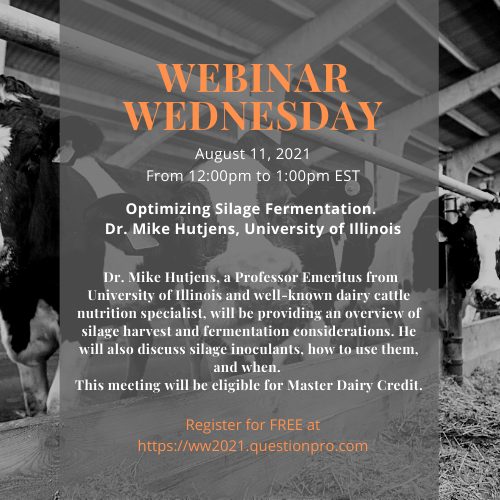
Elizabeth Eckelkamp, PhD PAS
Dairy Extension Specialist, Assistant Professor
University of Tennessee Institute of Agriculture
Animal Science Department
244 C.E. Brehm Animal Sciences Building
2506 River Drive, Knoxville, TN 37996
office: (865) 974-8167
cell: (337) 718-9764

KNOXVILLE, Tenn. — Beginning today, July 15, dairy businesses in Tennessee, North Carolina, and Kentucky are eligible to apply for a new round of funding to modernize and diversify their operations through the Dairy Business Innovation Initiatives (DBII) program.
The first round of funds for this program was made available in 2020 as part of an ongoing grant from the USDA Agricultural Marketing Service. So far, the University of Tennessee Department of Animal Science in partnership with the UT Center for Profitable Agriculture and Tennessee Department of Agriculture have awarded approximately $165,000 through DBII to Tennessee dairy producers.
In this new round of DBII funding, the pool of potential recipients is being expanded to include dairy businesses in Kentucky and North Carolina as well as Tennessee. The scale of projects that can be funded through this phase of funding has also grown.
Starting today, applicants in the three states will have the opportunity to submit project proposals for up to $500,000. The program will support projects of many sizes, but those making requests exceeding $150,000 should operate a licensed dairy farm and/or dairy plant and utilize a large portion of local milk. Their grant proposal should include a robust business plan. Those interested in applying or finding out more can visit utdairy.tennessee.edu/value-added-dairy-grant-application/.
DBII is working in affiliation with North Carolina State University and the Kentucky Dairy Development Council (KDDC) to publicize and evaluate applications for this round of grant funding.
Anyone who has questions about the program or about allowable expenses or purchases should reach out to project leader and UT Extension Dairy Specialist Liz Eckelkamp at eeckelka@utk.edu or Hal Pepper, financial specialist with the UT Center for Profitable Agriculture, at hal.pepper@utk.edu.
Through its land-grant mission of research, teaching and extension, the University of Tennessee Institute of Agriculture touches lives and provides Real. Life. Solutions. utia.tennessee.edu.
Shep Stearns
Value-Added Dairy Extension Specialist
University of Tennessee Institute of Agriculture
Animal Science Department
345 C.E. Brehm Animal Sciences Building
2506 River Drive, Knoxville, TN 37996
cell: (860) 595-6053
Check out UTDairy for updates and educational resources
Value-Added Dairy Conference in
Bowling Green, KY July 21-22
(Click flyers below to view/download)
Hello everyone,
If you would like to learn more about processing milk on-farm, please join us for the Value-Added Dairy Conference in Bowling Green, KY July 21-22. Our line-up of speakers includes experts from Kentucky Department of Agriculture, UT Knoxville, NC State, PennState, and the dairy industry. We will cover food safety, business planning, market trends, animal nutrition and more! See below for details. More information to come!
Best,
Shep Stearns
Value-Added Dairy Extension Specialist
University of Tennessee Institute of Agriculture
Animal Science Department
345 C.E. Brehm Animal Sciences Building
2506 River Drive, Knoxville, TN 37996
sstearn1@utk.edu
cell: (860) 595-6053
Dairy stories in June/July Cooperator
(Click below to read the articles)
A Co-op custom feed program is helping Charlotte dairyman
Benjie Daniel increase production

State of Tennessee employees:
In partnership with Optum, the 4Mind4Body series continues with the next webinar:
Mental Health Matters
Wednesday, May 26
11:30 a.m. – 12:30 p.m. CT
This one-hour presentation focuses on the impact of COVID-19 and social unrest. Topics include
- Mental health challenges
- Social isolation
- Grief and loss
- Self-care strategies
- Recognizing signs and symptoms of underlying mental health conditions
- What you can do for others
- Stress, anxiety and depression
- Available resources
(Click below to view/download)
Click the link in the attached flier to register or click this link below:
https://tn.webex.com/tn/onstage/g.php?MTID=e589046b301dc980414ab810d9766c979
Registration is required for all webinar sessions. Sessions will not be recorded. If Internet Explorer doesn’t work for you to register, you may need to try a different browser.
Find information at tn.gov/PartnersForHealth under Other Benefits > EAP here:
https://www.tn.gov/partnersforhealth/other-benefits/eap.html
Questions? Email partners.wellness@tn.gov
Upcoming Dairy Grazing Schools
Hello everyone,
Dr. Katie Mason and I wanted to share an upcoming grazing school opportunity with all of you. On June 1, 2021 and June 2, 2021 we will be hosting Dairy-Focused Grazing Schools at the East Tennessee Research and Education Center – Little River Dairy Unit and the Middle Tennessee Research and Education Center. We do plan on having some classroom time, so space is limited (30 max attendees). These Grazing Schools will also be made available to both dairy farmers and extension agents in each area, so we’re planning now for a 50/50 mix (15 farmers; 15 agents/specialists). Registration is required in advance because of the limited space and the agenda for both locations is attached. The link to register is https://dairygrazingschool.questionpro.com. If the event is full before you get a chance to register, feel free to reach out to Katie or I and we can start a waitlist for each location.
We look forward to seeing y’all in person!
Liz
Elizabeth Eckelkamp, PhD PAS
Dairy Extension Specialist, Assistant Professor
University of Tennessee Institute of Agriculture
Animal Science Department
244 C.E. Brehm Animal Sciences Building
2506 River Drive, Knoxville, TN 37996
office: (865) 974-8167
cell: (337) 718-9764
Herdsman Position for Dairy Operation Available
Good afternoon everyone,
I hope you are all doing well. Mr. Jim Farr contacted me today about looking for a herdsman for his dairy operation. He’s a dairy farmer in Niota, TN with robotic milkers. Ideally, he would like an employee who has the ability to artificially inseminate, has experience with technology and computers, and is able to assist/oversee farm responsibilities including: calf care, herd care, and feeding. Salary will be commensurate with experience level. If you are interested or know someone who might be, please contact Jim at (423) 507-4202 or jstevenfarr11@gmail.com. Feel free to share this information with other interested parties.
Thanks!
Liz
Elizabeth Eckelkamp, PhD PAS
Dairy Extension Specialist, Assistant Professor
University of Tennessee Institute of Agriculture
Animal Science Department
244 C.E. Brehm Animal Sciences Building
2506 River Drive, Knoxville, TN 37996
office: (865) 974-8167
cell: (337) 718-9764
UT AgResearch Announces Plans to Upgrade
and Refocus Two Facilities
Read the full article – click here
Hello everyone,
As a reminder, the third Webinar Wednesday will be next week, April 14, 2021 at 12pm EST/11am CST. You will see there has been a change in our topic for next week. Dr. Charley Martinez will be discussing the third round of the CFAP (Coronavirus Food Assistance Program) as well as some updates on previous rounds of the program. Dr. Martinez is a state extension specialist at UTIA, specializing in agriculture economics. This meeting is eligible for Master Dairy Credit in 2021. Below is the schedule for the next 3 months. The agenda is also attached. Please register for FREE at https://ww2021.questionpro.com to receive meetings links and additional information.
Elizabeth Eckelkamp, PhD PAS
Dairy Extension Specialist, Assistant Professor
University of Tennessee Institute of Agriculture
Animal Science Department
244 C.E. Brehm Animal Sciences Building
2506 River Drive, Knoxville, TN 37996
office: (865) 974-8167
cell: (337) 718-9764
AgLaunch Positions Open:
Click on name of the positions below to read more about them and how to apply.
Operations & Administrative Coordinator
Important News from TN Farmers Coop
(Click below to view/download)
ASA Data Powers New USDA National Agricultural Statistics Service Soil Moisture Portal
Link: https://www.nass.usda.gov/Newsroom/2021/03-08-2021.php If there is anyone not on this list who you think may be interested, please forward this message to them.
WASHINGTON, March 8, 2021 – Farmers, researchers, meteorologists and others now have access to high-resolution NASA data on soil moisture, thanks to a new tool developed by USDA’s National Agricultural Statistics Service (NASS) in collaboration with NASA and George Mason University (GMU).
The tool, Crop Condition and Soil Moisture Analytics (Crop-CASMA), provides access to high-resolution data from NASA’s Soil Moisture Active Passive (SMAP) mission and the Moderate Resolution Imaging Spectroradiometer (MODIS) instrument in a user-friendly format. Soil moisture data are critical for professionals in the agriculture and natural resource sectors who use soil moisture in tandem with other data to plan crop planting, forecast yields, monitor droughts or floods, and improve weather forecasts. Crop-CASMA is available for free online at https://cloud.csiss.gmu.edu/Crop-CASMA/.
According to Rajat Bindlish, a research associate in Earth science remote sensing at NASA’s Goddard Space Flight Center in Greenbelt, Maryland, the tool provides more thorough spatial coverage and consistency than other soil moisture measurement methods.
“Soil moisture is a very important piece of information for agricultural yield and productivity,” said Bindlish. “This will provide a means of using NASA remote sensing data to guide predictions of moisture conditions and water availability. Information on the field conditions is important for agricultural operations.”
Some of Crop-CASMA’s primary users will be NASS researchers and statisticians who release weekly Crop Progress Reports that currently classify states into moisture categories (very short, short, adequate, surplus) to aid farmers and farm managers. The reports also track crops’ health and growing progress.
“USDA researchers and statisticians will incorporate the tool into a range of applications,” said NASS Spatial Analysis Research lead Rick Mueller. “For example, Crop-CASMA can help identify areas that could not be planted because of wet, saturated, frozen, excessively dry, or inaccessible fields resulting in improved planted statistical acreage estimates.”
Mueller noted that in addition to supporting agricultural operations, Crop-CASMA will enable research on sustainability and the impact of extreme weather events. “These satellite-derived vegetation condition indices and soil moisture condition maps show first-hand the ever-changing landscape of U.S. agriculture,” he said.
The tool is formatted to be accessible to private users, including farmers, researchers, and students, according to Crop-CASMA project leader Zhengwei Yang, a USDA geographer and co-investigator of the High-Resolution Soil Moisture Development Project.“We created an easy-to-use interface that requires little technical background to use,” said Yang. “There’s a tool to select an area and create a map you can save as a PDF, and you can also download data from the web to input into your model.”
This work was supported by NASA Applied Sciences’ Earth Science Division’s Western Water Applications Office ( WWAO) and the NASA Terrestrial Hydrology Program. WWAO’s mission is to improve how water is managed in the arid western United States, and the tool is part of a portfolio of water projects that use the power of remote sensing to deliver new solutions on issues such as drought, snowpack, and water supplies.
“We know from our water partners in the western United States that there is a critical need for soil moisture data,” explained Indrani Graczyk, manager of WWAO. “This project was a great opportunity to partner with the USDA to get NASA data directly into the hands of farmers, and we were happy to support it.”
SMAP data, the foundation for Crop-CASMA, draw from the topsoil and rootzone levels, or from the surface to roughly 3 feet (1 meter) underground. Raw SMAP data have a 36-kilometer (roughly 20-mile) spatial resolution, meaning each data “footprint ” is about the size of a county. The team also developed a data analysis method to estimate a higher-resolution soil moisture product using SMAP and land surface data, giving users information at 1-kilometer (0.62-mile) resolution. Having the data in finer resolution allows users to more accurately pinpoint areas of high or low moisture, Yang explained. “Our current reports are at the state level,” Yang said. “One state may be categorized on average as ‘wet,’ but the whole state might not actually be wet. These new data deliver localized moisture readings – this is what matters to the farmer.”
Crop-CASMA was developed in cooperation with the Center for Spatial Information Science and Systems (CSISS) at GMU, NASA’s Goddard Space Flight Center, and NASA’s Jet Propulsion Laboratory (JPL). JPL manages the SMAP mission for NASA, and Goddard produces the SMAP 9-km rootzone and 1-km surface soil moisture products. Hosted and maintained by the CSISS, the online tool is operated by NASS’s Research and Development Division. “We are very happy with the research collaboration between NASA’s Goddard Space Flight Center, NASA JPL, and GMU, and the project coordination of USDA’s Agricultural Research Service, and thank them for their support in bringing cutting-edge technology into USDA operations,” said Yang.
This collaboration is part of a larger, recently-signed agreement between USDA and NASA to jointly strengthen agricultural and Earth science research.
“Having the SMAP soil moisture data going directly to the users at NASS realizes one of the key goals of the mission,” said Simon Yueh, SMAP project scientist at JPL. “A strong collaboration between NASA and USDA has made this possible.”
###
NASS is the federal statistical agency responsible for producing official data about U.S. agriculture and is committed to providing timely, accurate and useful statistics in service to U.S. agriculture.
USDA is an equal opportunity provider, employer and lender. To file a complaint of discrimination, write to USDA, Assistant Secretary for Civil Rights, Office of the Assistant Secretary for Civil Rights, 1400 Independence Avenue, S.W., Stop 9410, Washington, DC 20250-9410, or call toll-free at (866) 632-9992 (English) or (800) 877-8339 (TDD) or (866) 377-8642 (English Federal-relay) or (800) 845-6136 (Spanish Federal-relay).
WASHINGTON, March 8, 2021 – Farmers, researchers, meteorologists and others now have access to high-resolution NASA data on soil moisture, thanks to a new tool developed by USDA’s National Agricultural Statistics Service (NASS) in collaboration with NASA and George Mason University (GMU).
The tool, Crop Condition and Soil Moisture Analytics (Crop-CASMA), provides access to high-resolution data from NASA’s Soil Moisture Active Passive (SMAP) mission and the Moderate Resolution Imaging Spectroradiometer (MODIS) instrument in a user-friendly format. Soil moisture data are critical for professionals in the agriculture and natural resource sectors who use soil moisture in tandem with other data to plan crop planting, forecast yields, monitor droughts or floods, and improve weather forecasts. Crop-CASMA is available for free online at https://cloud.csiss.gmu.edu/Crop-CASMA/.
According to Rajat Bindlish, a research associate in Earth science remote sensing at NASA’s Goddard Space Flight Center in Greenbelt, Maryland, the tool provides more thorough spatial coverage and consistency than other soil moisture measurement methods.
“Soil moisture is a very important piece of information for agricultural yield and productivity,” said Bindlish. “This will provide a means of using NASA remote sensing data to guide predictions of moisture conditions and water availability. Information on the field conditions is important for agricultural operations.”
Some of Crop-CASMA’s primary users will be NASS researchers and statisticians who release weekly Crop Progress Reports that currently classify states into moisture categories (very short, short, adequate, surplus) to aid farmers and farm managers. The reports also track crops’ health and growing progress.
“USDA researchers and statisticians will incorporate the tool into a range of applications,” said NASS Spatial Analysis Research lead Rick Mueller. “For example, Crop-CASMA can help identify areas that could not be planted because of wet, saturated, frozen, excessively dry, or inaccessible fields resulting in improved planted statistical acreage estimates.”
Mueller noted that in addition to supporting agricultural operations, Crop-CASMA will enable research on sustainability and the impact of extreme weather events. “These satellite-derived vegetation condition indices and soil moisture condition maps show first-hand the ever-changing landscape of U.S. agriculture,” he said.
The tool is formatted to be accessible to private users, including farmers, researchers, and students, according to Crop-CASMA project leader Zhengwei Yang, a USDA geographer and co-investigator of the High-Resolution Soil Moisture Development Project.
“We created an easy-to-use interface that requires little technical background to use,” said Yang. “There’s a tool to select an area and create a map you can save as a PDF, and you can also download data from the web to input into your model.”
This work was supported by NASA Applied Sciences’ Earth Science Division’s Western Water Applications Office ( WWAO) and the NASA Terrestrial Hydrology Program. WWAO’s mission is to improve how water is managed in the arid western United States, and the tool is part of a portfolio of water projects that use the power of remote sensing to deliver new solutions on issues such as drought, snowpack, and water supplies.
“We know from our water partners in the western United States that there is a critical need for soil moisture data,” explained Indrani Graczyk, manager of WWAO. “This project was a great opportunity to partner with the USDA to get NASA data directly into the hands of farmers, and we were happy to support it.”
SMAP data, the foundation for Crop-CASMA, draw from the topsoil and rootzone levels, or from the surface to roughly 3 feet (1 meter) underground. Raw SMAP data have a 36-kilometer (roughly 20-mile) spatial resolution, meaning each data “footprint” is about the size of a county. The team also developed a data analysis method to estimate a higher-resolution soil moisture product using SMAP and land surface data, giving users information at 1-kilometer (0.62-mile) resolution.
Having the data in finer resolution allows users to more accurately pinpoint areas of high or low moisture, Yang explained. “Our current reports are at the state level,” Yang said. “One state may be categorized on average as ‘wet,’ but the whole state might not actually be wet. These new data deliver localized moisture readings – this is what matters to the farmer.”
Crop-CASMA was developed in cooperation with the Center for Spatial Information Science and Systems (CSISS) at GMU, NASA’s Goddard Space Flight Center, and NASA’s Jet Propulsion Laboratory (JPL). JPL manages the SMAP mission for NASA, and Goddard produces the SMAP 9-km rootzone and 1-km surface soil moisture products. Hosted and maintained by the CSISS, the online tool is operated by NASS’s Research and Development Division.
“We are very happy with the research collaboration between NASA’s Goddard Space Flight Center, NASA JPL, and GMU, and the project coordination of USDA’s Agricultural Research Service, and thank them for their support in bringing cutting-edge technology into USDA operations,” said Yang.
This collaboration is part of a larger, recently-signed agreement between USDA and NASA to jointly strengthen agricultural and Earth science research.
“Having the SMAP soil moisture data going directly to the users at NASS realizes one of the key goals of the mission,” said Simon Yueh, SMAP project scientist at JPL. “A strong collaboration between NASA and USDA has made this possible.”
###
NASS is the federal statistical agency responsible for producing official data about U.S. agriculture and is committed to providing timely, accurate and useful statistics in service to U.S. agriculture.
USDA is an equal opportunity provider, employer and lender. To file a complaint of discrimination, write to USDA, Assistant Secretary for Civil Rights, Office of the Assistant Secretary for Civil Rights, 1400 Independence Avenue, S.W., Stop 9410, Washington, DC 20250-9410, or call toll-free at (866) 632-9992 (English) or (800) 877-8339 (TDD) or (866) 377-8642 (English Federal-relay) or (800) 845-6136 (Spanish Federal-relay).
Debra K. Kenerson
State Statistician, USDA/NASS TN Field Office
Nashville, Tennessee
Phone: 615-891-0903
Email: debra.kenerson@usda.gov
Local Creamery names Business & Marketing Director
Shop Springs Creamery, a locally owned and operated dairy creamery located in rural Wilson County, is pleased to announce Jessica Schriver as the company’s new Director of Business and Marketing.
Schriver, originally from Peachtree City, Georgia and recent graduate of Middle Tennessee State University, is excited about her new position and looks forward to reaching out in the Lebanon, Wilson County communities.
“This is a great opportunity, and I am excited about growing our foot print in the middle Tennessee market,” commented Schriver about her new position.
Although her passions are now rooted in Tennessee agriculture, she grew up in the horse industry just southwest of Atlanta and was heavily involved in all breeds of cattle. During her high school years, she began a career with Chick-fil-A, starting as a team member and was quickly promoted to leadership as a coordinator, and then a director upon her high school graduation. Her desire to pursue a career within agriculture brought her to Middle Tennessee State University.
“MTSU offered studies in an area that I was very familiar with and my passion has always been in agriculture. It was a natural choice for me to pursue my degrees at Middle Tennessee State University,” she added.
During her time at MTSU, Jessica held leadership roles within the Block & Bridle Club, the Equestrian Team, the Dairy Show Team, and the Agriculture Ambassadors. She also had the opportunity to intern for the Tennessee Farm Bureau Federation, learn about the feed industry and work for Lascassas Feed Supply.
Following her love of dairy cattle, she became student farm manager for the MTSU Dairy. She graduated with a bachelor’s in Animal Science and then went on to earn her master’s degree in agricultural education leadership as a graduate teaching assistant for Dr. Alanna Vaught and Dr. Jessica Carter.
Schriver currently resides in and plans on remaining a life-long resident of Milton, TN, with her fiancé, Chad Young. Outside of their professional lives, the couple assists with the Young family’s cow calf and hay operation. She also enjoys ranch riding, working cow horses and reining—actively competing at local stock horse shows. She is actively involved within the agriculture industry of Middle Tennessee. She currently serves on the Tennessee Stock Horse Association Board of Directors, is the chairman of the Rutherford County Young Farmers and Ranchers, a member of the Tennessee Farm Bureau Federation’s ACE Team, and an industry advisor for LaVergne High School FFA.
Shop Springs Creamery offers homemade ice cream and other dairy products produced in the Shop Springs community of Wilson County, TN. A family farm committed to producing a wholesome nutritious product with your family in mind. Shop Springs Creamery is located at 2816 Sparta Pike and offers homemade ice cream by the scoop or in larger containers. In December of 2020, they began bottling milk and other dairy products for distribution at their store and in local markets. For more information about Shop Springs Creamery, check out their website at www.shopspringscreamery.com.
Please let me know if you need anything else!
Looking forward to working with you!
|
UTIA Career Opportunity Extension Specialist…
(Click below to view/download)
USDA Disaster Assistance Toolkit for Winter Storms
Winter storms create significant challenges and often result in catastrophic loss for agricultural producers, especially for those raising livestock, row crops and vulnerable crops like citrus.
Despite every attempt to mitigate risk, many agricultural operations suffered losses. When disaster strikes, USDA is here to help.
As agricultural producers move into recovery mode and assess damages, they should contact their local USDA Service Center to report losses and learn more about program options available to assist in their recovery from crop, land, infrastructure and livestock losses and damages.
In an effort to further amplify disaster assistance programs that can help producers recover, I am sharing a social media toolkit and corresponding graphic images for use as you deem appropriate.
Attached, you will find a toolkit document containing suggested messages for use on Twitter, Instagram and Facebook. Additionally, I have attached image files that have been designed and formatted specifically for use with the each of the previously listed social media platforms.
Thank you in advance for any support you can provide in getting these messages to your audiences thorough your social media accounts.
Please contact me if you have questions or need additional information.
Respectfully,
Greer Gill
Public Affairs / Outreach Coordinator
Farm Service Agency – USDA
Tennessee State Office
615-277-2615 office
855-494-7764 fax
(Click below to view/download the toolkit)
Review of Coronavirus Food Assistance Program Continues
(Click the image below to read the full bulletin)
USDA FSA would like to remind our state partners that we offer several disaster assistance options to help producers recover after they are impacted by severe weather, including those impacted by winter storms and extreme cold.
Our national office is working on a toolkit with social media posts and newsletter articles, but in the meantime I wanted to send the below link so you all can review the programs that we offer if you get any calls from producers. Just click on “Learn More About How USDA Can Help.”
A friendly reminder to producers is how critical it is to keep accurate records to document the losses and illnesses following this devastating cold weather event. Livestock producers are advised to document beginning livestock numbers by taking photos or videos of any losses. Other common documentation options include:
- Purchase records
- Production records
- Vaccination records
- Bank or other loan documents
- Third-party certification
Thank you,
Greer Gill
Public Affairs / Outreach Coordinator
Farm Service Agency – USDA
Tennessee State Office
615-277-2615 office
855-494-7764 fax
Tennessee USDA NRCS Sets March 26 Application Cutoff for FY 2022 CSP Renewals
NASHVILLE, February 12, 2021 – The U.S. Department of Agriculture Natural Resources Conservation Service (NRCS) in Tennessee is accepting Conservation Stewardship Program (CSP) renewal applications through Friday, March 26, 2021 to be considered for FY 2022 funding.
Current CSP participants who believe they are eligible should contact their local NRCS office on or before the March 26th application deadline.
Participants with existing CSP contracts expiring on December 31, 2021 can renew their contracts for an additional five years if they agree to adopt additional activities to achieve higher levels of conservation on their lands. 2017-1 CSP contract holders will be eligible for renewal in FY22.
The full news release below…
USDA NRCS in Tennessee Announces Application Deadline for FY2021 Conservation Stewardship Program-Classic
Deadline to Apply is March 26, 2021
NASHVILLE, February 5, 2021 – The United States Department of Agriculture Natural Resources Conservation Service (NRCS) is encouraging Tennessee agricultural producers who want to enhance current conservation effort to apply for the Conservation Stewardship Program (CSP)-Classic, formerly known as CSP-General.
The full news release can be found attached to this email and on the Tennessee NRCS website by clicking here.
Click the image below to read news release
We will be continuing the Dairy Webinar Wednesday series in 2021 on the second Wednesday of each month from 12pm to 1pm EST. These meetings will count toward Master Dairy Credit for 2021. Below is the schedule for the first 4 months. The agenda is also attached. Please register for FREE at https://ww2021.questionpro.com

Feel free to contact me with any questions,
Liz
Elizabeth Eckelkamp, PhD PAS
Dairy Extension Specialist, Assistant Professor
University of Tennessee Institute of Agriculture
Animal Science Department
244 C.E. Brehm Animal Sciences Building
2506 River Drive, Knoxville, TN 37996
office: (865) 974-8167
cell: (337) 718-9764
Good morning everyone,
Hope you all had a Merry Christmas and a Happy New Year. You may have already received correspondence from Stan about the upcoming TDPA Annual Meeting on January 22nd, 2021, at the Wilson County Fair Grounds but just in case, attached is the agenda for the meeting. Stan and I have also provided a link to join the meeting remotely for anyone who would like to join remotely. Clicking this link (https://tennessee.zoom.us/j/98609335226) will take you directly to the meeting, no registration is required and the password to join is “TDPA”. The meeting will begin at 8:30am CST and run until 4:30/5:00pm CST. If you are attending in person, please let Stan know so he can have an accurate lunch count.
Click below to view/download the meeting agenda…
TDPA Annual Meeting Program Agenda 2021
Happy Thursday all!
Liz
Elizabeth Eckelkamp, PhD PAS
Dairy Extension Specialist, Assistant Professor
University of Tennessee Institute of Agriculture
Animal Science Department
244 C.E. Brehm Animal Sciences Building
2506 River Drive, Knoxville, TN 37996
office: (865) 974-8167
cell: (337) 718-9764
View my availability at https://doodle.com/liz.eckelkamp
Webinars available for TMDP credit:
Below are all the recordings of the previous webinars we’ve done since pandemic hit. Viewing the recordings WILL COUNT for Master Dairy Credit. For easy reference, the names and links to the webinars are below. Use this link (https://tiny.utk.edu/TMDP_form) to receive credit for viewing any of the below recordings.
Dump Milk: What Can I Do with It? – https://youtu.be/gN8r0JgKUzE
Coping with COVID-19: Biosecurity – https://youtu.be/eyRDWEHlXtY
Mastitis Diagnosis and Treatment: Less is More – https://youtu.be/xAoJeAGptMw
Un nuevo virus COVID19 información para empleados agrícolas – https://youtu.be/wrCzQ8k97V0 Information on the novel virus, COVID-19, for agricultural employees (Spanish ONLY)
PCDART Overview and Setting up Timed AI Protocols – https://youtu.be/tMz-rJbPk2E
Understanding and Managing Heat Stress – https://youtu.be/4-CgshUYy5c
Coronavirus Food Assistance Program Update – https://youtu.be/hnJ76EEPz-w
Transition Cow Diseases and Protocols – https://youtu.be/sNx44g2ObR8
Guidelines for Silage Storage – https://youtu.be/CZs4VS4RE98
Precision Dairy Technology – https://youtu.be/xuBwJoJswII
For the February meetings, the recordings can be found below. Use this form (https://forms.gle/PmNY3Lp6bzbrDUQ66) to show completion. Each of these are worth 1.5 hrs of continuing education.
Heifer Feeding Programs: One size fits all?
Forage Analytics https://mediasite.utk.edu/UTK/Play/60fb451b9f244396a07496a76f202c5f1d?catalog=5d5f6cf2f2fc432d9ffca6bbe895694a21
We are also doing to the Cow2Cup workshop (1 hour each) and that started in September. We’ll be covering information that is more geared to the general public than dairy farmers and ag agents, but you are welcome to watch that as well. Our next two in the Cow2Cup workshop series will be in October and November. To register for those, follow this link (https://cow2cupworkshop.questionpro.com).
Value-added:
Sub-award application should be coming out in October – deadline to submit to TDA will be 60 days after release date. $25,000 maximum award request per application. Will be a rolling enrollment on a monthly basis after first application period. Must have some processing or marketing focus in order to apply.
Multi-state sub-award application should come out early spring. Cooperating with KY and NC. Must have some processing or marketing focus in order to apply.
2nd Annual Value-Added Conference – December 17, 2020
Elizabeth Eckelkamp, PhD PAS
Dairy Extension Specialist, Assistant Professor
University of Tennessee Institute of Agriculture
Animal Science Department
244 C.E. Brehm Animal Sciences Building
2506 River Drive, Knoxville, TN 37996
office: (865) 974-8167
cell: (337) 718-9764
View my availability at https://doodle.com/liz.eckelkamp
Funding Available for Innovative Partner-Driven Projects Aimed at Improving Water Quality, Wildlife Habitat,
and Soil Health in Tennessee
Application Batching Deadline is January 15, 2021
NASHVILLE, December 1, 2020 – The United States Department of Agriculture Natural Resources Conservation Service (NRCS) is offering funding for innovative partner-driven projects to improve water quality, wildlife habitat and soil health in two Regional Conservation Partnership Program (RCPP) areas in Tennessee.
To be considered for program funding, applicants must operate land within the focus area of the respective RCPP project. The deadline to submit applications for fiscal year (FY) 2021 funding is January 15, 2021.
The full news release can be found attached and on the Tennessee NRCS website by clicking here.
November Tennessee FSA Newsletter

Good morning everyone,
To try to increase our survey responses, we have extended the survey for another few weeks (December 18, 2020). We realize that your time is valuable and we appreciate your time helping us answer these research questions. In just 15 minutes, you can help us understand the impact of fresh cow diseases on our Tennessee dairy farms. We are asking dairy producers to help us understand their perspectives of fresh cow care, diseases, costs, and protocols. We will be asking questions regarding existing fresh cow protocols, disease costs, and barriers to protocol implementation. This information will be used to develop new training materials, applied research materials, and extension programs.
We invite you to complete the research survey and we appreciate your participation. You should have already received a paper copy of this survey in the mail with a prepaid return envelope. You may complete either the paper version, or you can follow this link (https://freshcowprotocols.questionpro.com) to the survey, which should take 15 minutes to complete. Your participation is voluntary and you may decline to participate at any time without any penalty. If you withdraw from the research study before data collection is completed your data will be destroyed. Withdrawing from the study will not impact your relationship with the university in any way. We do not foresee any risks to your participation beyond that encountered in everyday life. The data you provided will be confidential and results will be presented only in the aggregate.
Your perceptions really matter. We thank you and highly appreciate your input that we have received so far. If you have not already, it is not too late.
If you have questions regarding your rights as a research participant, please contact Institutional Review Board, The University of Tennessee, 1534 White Avenue, Blount Hall, Room 408, Knoxville, TN 37996-1529, Phone: (865) 974-7697, email: utkirb@utk.edu.
Thank you,
Arup & Dr. Liz
Graduate Research Assistant
The University of Tennessee, Knoxville
Department of Animal Science
353 Brehm Animal Science Building
2506 River Drive
Knoxville, TN 37996
Tennessee Landowners Interested in Improving Natural Resources Encouraged to Apply for NRCS Assistance
Deadline to Apply is November 20, 2020
NASHVILLE, October 19, 2020 – The United States Department of Agriculture Natural Resources Conservation Service (NRCS) is now accepting applications from Tennessee producers and landowners who are interested in implementing conservation practices to improve natural resources on their farm or forest land. Funding is available through the NRCS Environmental Quality Incentives Program (EQIP), and the deadline to apply for fiscal year 2021 funding is November 20, 2020.
The full news release can be found below and on the Tennessee NRCS website by clicking here.
I’ve attached a stakeholder toolkit for CFAP2, and this includes some great information for promoting the second round of relief funding available for producers through USDA Farm Service Agency. If you can do anything promote this program for us, we would sure appreciate it! We hope you can help spread the word to our shared producers to help Tennessee’s agricultural economy.
Included in the toolkit:
- Key messages
- Newsletter article
- Social media posts
- Social media story posts
- Posters
CLICK HERE TO DOWNLOAD THE TOOLKIT PDF
You can also find information on farmers.gov/cfap. If you have any questions or concerns, please let me know.
Thank you,
Greer Gill
Public Affairs / Outreach Coordinator
Farm Service Agency – USDA Tennessee State Office
615-277-2615 office
My grad student Arup will be sending out a state wide survey asking for dairy producer’s feedback on their transition cow programs. We will be sending a mailed version with prepaid return envelopes and there will be an online version as well. We hope to hear from all of you!
Elizabeth Eckelkamp, PhD PAS
Dairy Extension Specialist, Assistant Professor
University of Tennessee Institute of Agriculture
Animal Science Department
Coronavirus Food Assistance Program 2
Toolkit for Stakeholders
USDA FSA has announced the second round of funding for Coronavirus relief to farmers. Please see attached for our CFAP 2 stakeholder toolkit and news release announcing the program. Please note that the stakeholder toolkit has ready to go social media posts, and we would appreciate your help spreading the word through social media or newsletters to your producers. Please let us know if you see the need for any further outreach on these programs. We are happy to partner in order to ensure that producers take advantage of these funds.
Click on the images below to read and / or download
Let me know if you have any questions or need any additional information. Thank you for your help spreading the word!
Thank you,
Greer Gill
Public Affairs / Outreach Coordinator
Farm Service Agency – USDA
Tennessee State Office
615-277-2615 office
855-494-7764 fax
Job Opportunity – Herdsman at Farr Dairy
Mr. Jim Farr is looking for a herdsman for his dairy operation. He’s a dairy farmer in Niota, TN who recently installed robotic milkers. Ideally, he would like an employee who has the ability to artificially inseminate, has experience with technology and computers, and is able to assist/oversee farm responsibilities including: calf care, herd care, and feeding. Salary will be commensurate with experience level. If you are interested or know someone who might be, please contact Jim at (423) 507-4202 or jstevenfarr11@gmail.com
I hope you are all doing well! We’ve got an exciting opportunity starting next Wednesday that I would like to share with you and the folks in your counties. During my time here, I’ve gotten quite a few questions about dairy cattle care, the pathway of milk, and about the safety of raw milk. To answer those questions, we’ve put together the Cow2Cup Workshop. We’ll be following the pathway of milk from the cow to the cup of you, your family, and your friends! We’ll do this through 3 webinars, each an hour long, once a month this month, next month, and finish up in November. This series WILL COUNT for Master Dairy credit if y’all are still needing any. With opening this up to anyone across the state, we will be requiring registration for these meetings.
Use this link https://cow2cupworkshop.questionpro.com/ to register and receive the meeting details and link to the webinar.
Please share this FREE opportunity with you counties. We hope to see you there!
Have a wonderful weekend!
Liz
Elizabeth Eckelkamp, PhD PAS
Dairy Extension Specialist, Assistant Professor
University of Tennessee Institute of Agriculture
Animal Science Department
(Decatur, AL) Agri-AFC, GreenPoint AG, and Tennessee Farmers
The combined GreenPoint AG is owned by three parent companies: Alabama Farmers Cooperative (AFC), Tennessee Farmers Cooperative (TFC), and WinField United.
It will operate 99 retail and
“We recognize the rich history of our companies and the pride of ownership that exists amongst our member-owners, and we want to enter this relationship with careful thought and consideration of the impact to our farmer-owners, our customers, our member co-ops and our employees,” says Bart Krisle, CEO of Tennessee Farmers Cooperative.
When asked why the parent companies decided to join these three businesses together, Rivers Myres, CEO of Alabama Farmers Cooperative shared, “Even though we are all individually strong, it takes vision and strategic leadership to both remain competitive and to provide exceptional service to our ultimate customer, the American Farmer, and GreenPoint AG will allow for us to do both.”
Jeff Blair has been selected to lead the new entity as Chief Executive Officer. He comes to Greenpoint AG most recently from The Andersons, where he was President of the Plant Nutrient Group. Previous to that role, he held leadership roles at Intrepid Potash, Orica Mining Services and was a Captain in the U.S. Army.
“I could not be more excited for this opportunity,” said Blair. “The leadership teams of all three companies have built strong businesses and I believe this new company is the right company, with the right people and the right strategy to help our farmer and retail members succeed in this ever-changing world.”
Brett Bruggeman, President of WinField United and Executive Vice President of Land O’Lakes, Inc., agrees that the timing is perfect for this type of opportunity. “This organization is positioned for future growth and will be relevant in the marketplace for years to come. GreenPoint AG will be focused on upstream market access predictability and downstream total agronomy solutions, both driven by our digital omnichannel platform.”
GreenPoint AG will be based in Decatur, Alabama, with regional offices in Memphis and LaVergne, Tennessee.
About Agri-AFC, LLC
Agri-AFC is a joint venture between Alabama Farmers Cooperative (AFC) and WinField United, which formed in 2003. WinField United is an entity of Land O’Lakes. This joint venture provides more competitively-priced crop inputs, and a wider product selection, along with almost 90 years of customer service and expertise in the southeast. Agri-AFC is headquartered in Decatur, Alabama and employs over 325 employees in Alabama, Southwest Georgia, Southern Mississippi, and the Florida Panhandle.
About Tennessee Farmers Cooperative
Tennessee Farmers Cooperative (TFC) is the regional farm supply and service organization serving member Co-ops in Tennessee and the surrounding areas. Co-op, recognized as one of the strongest federated farm supply cooperative systems in the nation, includes TFC and the 52 member Co-ops and 11 associate members in neighboring states that own TFC. At its foundation are the roughly 70,000 farmers who are member-owners of the local Co-ops in their home counties. Some 164 Co-op retail outlets, which operate in 84 of Tennessee’s 95 counties, and across the border in five neighboring states, serve more than half a million customers.
About Alabama Farmers Cooperative
Alabama Farmers Cooperative, Inc. (AFC) was organized in Decatur, Alabama in 1936 and is a cooperative in the truest sense of the word. AFC is governed by local, farmer-owned cooperatives with a Board of Directors consisting of farmers who actively participate in the agricultural growth of Alabama and Northwest Florida. Through diversity and strong leadership, AFC has grown to become one of the largest farmer-owned agriculture related businesses in the Southeast operating 34 member Co-ops with over 60 retail locations.
About WinField United
WinField United is the seed, crop protection products, agricultural services and agronomic insights business of Land O’Lakes, Inc. As an industry leader, the business focuses on meeting the needs of nearly 1,300 locally owned and operated cooperative and independent agricultural retailers and their grower-customers across the United States. Through data-backed, insight-driven agronomics; operational excellence; and sustainable solutions delivered under the WinField® United brand, the business helps retailers successfully meet farmers’ needs.
Additional Information:
Billion-Dollar Agronomy Business Merger
The new GreenPoint AG will include all operations of Agri-AFC’s wholesale and retail business, GreenPoint AG’s r…
Julie
CFAP deadline extension to September 11th,
as well as the additional commodities that
have been added to the program.
Please click on the documents below to find out more about
the programs and how to sign up.
CAFB Fund TDA Press Release
FINANCIAL RELIEF FOR AGRICULTURAL AND FORESTRY
BUSINESSESANNOUNCED
Click the document below to download / read
USDA-Farm Service Agency is working with UT Extension to ensure that all producers eligible for CFAP payments are aware of the program.
As of July 20, 2020 there were 147 dairy applications that have been submitted to the USDA-FSA. There are 180 licensed dairies in Tennessee.
Application Deadline August 28th, 2020Click for more information here.
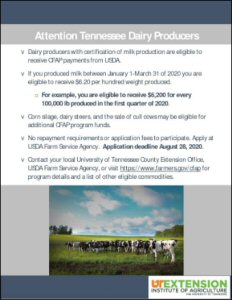

Thank all of you for the prayers and acts of concern for the Freddy Tilley and Olivia Garner families in the past week.
Our hearts are heavy as we share the news that Freddy’s daughter, Olivia, passed to her Heavenly home on Sunday evening, after complications from heart surgery. Olivia is survived by her husband, Lucas Garner, and their two small children, a son and daughter, and her mother, Kim Isbill Hall, and her husband, Spencer.
Her passing was announced in a Facebook post by her husband, Lucas Garner.
Freddy and his wife, Sherry, were able to travel to Nashville to see Olivia at Vanderbilt. Freddy is still being treated for a blood clot, so please keep him and Sherry in your prayers for his continued recovery.
Several family members and close friends had been to visit to support Olivia and the families in the past week, while some of the Tilleys remained home in order to tend to the family’s dairy operation.
Mr. Maurice Tilley, when I spoke with him yesterday, said the family had been overwhelmed and humbled by all of the prayers and offers of help they had received during the past weeks.
We’ll pass along service information for Olivia when it is available. Please join us in keeping all of the Tilley, Garner, and Hall families in your prayers and acts of kindness in the coming days and weeks, for anything they may need.
Prayerfully,
Julie
Good evening all,
Attached is the UPDATED Excel calculator tool (Click here to download) that the econ team has developed to estimate CFAP program payments. This version includes the addition of silage capabilities and a tab for the specialty section of the program. Remember, the application period opened YESTERDAY, May 26, 2020.
As a reminder for dairy, corn silage inventories as of January 15, 2020 may be included to reach the maximum amount for your operation. Cull dairy cows and dairy steers may also be included as beef animals. If you missed our webinar on it last week, a recording can be viewed here (https://youtu.be/YjLLHwHCE-s).
It is very important to note that details continue to evolve rapidly on the program. We will continue to provide updates as additional information is revealed. Additionally, the econ team will be releasing short videos with examples on how to input information, to obtain CFAP payment estimates, for a few representative operations.
The videos will be located here https://tiny.utk.edu/CropsCattleCharley. There will be 3 videos that will cover how to use the calculator for crop producers, beef producers, and dairy operations.
The USDA CFAP website https://www.farmers.gov/cfap has additional details, fact sheets, forms and web tools. The CFAP also has a calculator tool that can be found at https://www.farmers.gov/cfap, under the CFAP application subtitle.
If you have any questions do not hesitate to contact Charley Martinez (cmart113@utk.edu), Aaron Smith (aaron.smith@utk.edu), Andrew Griffith (agriff14@utk.edu), or me.
Thanks!
Liz
Elizabeth Eckelkamp, PhD PAS
Dairy Extension Specialist, Assistant Professor
University of Tennessee Institute of Agriculture
Animal Science Department
244 C.E. Brehm Animal Sciences Building
2506 River Drive, Knoxville, TN 37996
USDA Coronavirus Food Assistance Program
Are you a farmer or rancher whose operation has been directly impacted by the coronavirus pandemic? The Coronavirus Food Assistance Program will provide direct relief to producers who faced price declines and additional marketing costs due to COVID-19.
Read all about the program and it’s benefits here… https://www.farmers.gov/cfap and here… https://www.farmers.gov/cfap/faq
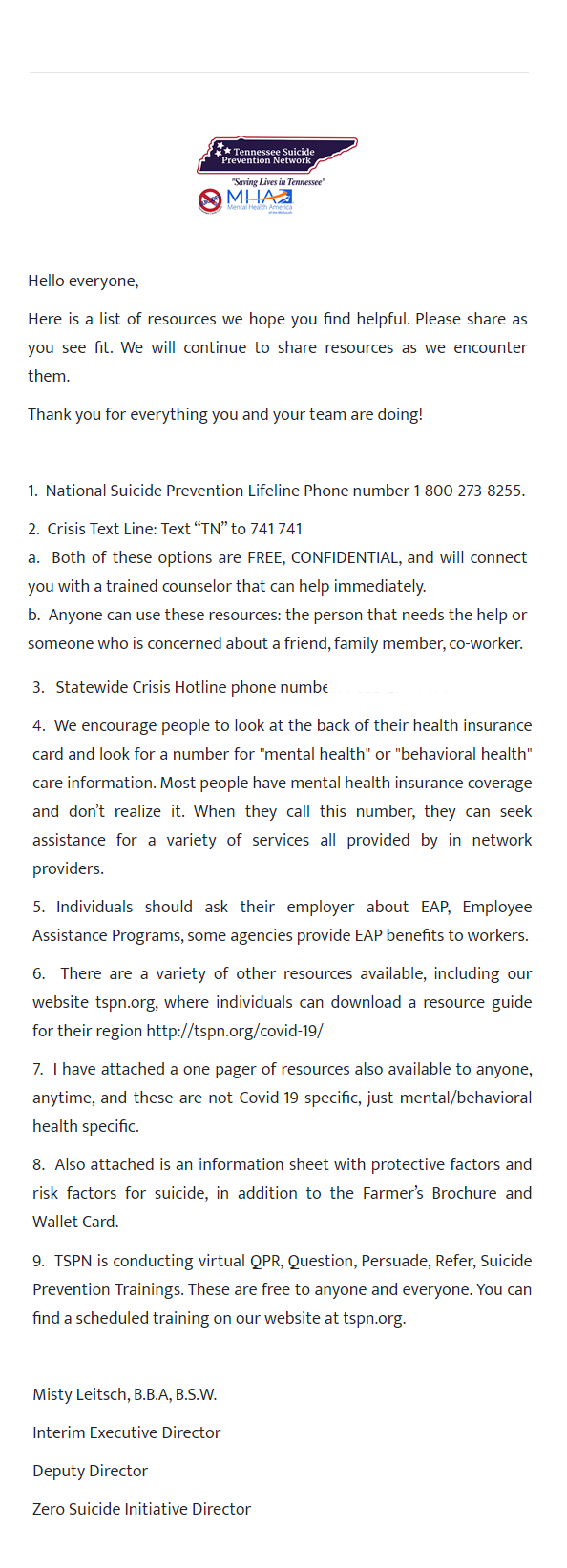
Form for Dairy Employees and Industry Infrastructure
Self-Certify as Critical Infrastructure Industry:
There have been a handful of reports that local authorities in at least two states have stopped trucks carrying food products from entering or leaving quarantined zones. To ensure our dairy industry is able to do its job in service to the nation, IDFA (International Dairy Foods Association) suggests your company use the form attached to self-certify your employees or shipments as part of the nation’s critical infrastructure. Print the form on official company letterhead (your own or that of your transportation provider), print a copy, sign the document where indicated, and ask the employee or driver to keep it on-hand to provide to authorities should they stop individuals or vehicles from carrying out their duties.
Thank you,
Farrah Newberry
Executive Director
GA Milk Producers, Inc.
706-310-0020 (office)
706-207-0168 (cell)
The National Milk Producers Federation has developed a permission letter for farms to give to employees traveling to and from the dairy during the COVID-19 outbreak. Click here for the letter.
Please feel free to use and print on your letterhead. I have not heard of any issues in Georgia regarding employees and Covid-19, but it is important to stay prepared.
I have also posted the letter and additional COVID-19 information on our website at https://www.gamilk.org/covid-19
Please feel free to contact me with any questions and concerns. I will continue to send out information as I receive it.
Sincerely,
Farrah Newberry
Executive Director
GA Milk Producers, Inc.
706-310-0020 (office)
706-207-0168 (cell)
gamilk.org
Video Recordings and UTDairy Resources
Good afternoon everyone,
Thank you again for so many of you logging in and joining us for our first online speaker series. Y’all asked some great questions, and we plan to offer more of these in the future. The Video Recordings have been posted to our UT Dairy Resources page https://ag.tennessee.edu/AnimalScience/UTDairy/Pages/Resources.aspx under “Video Resources”. Be sure to look around our resources page for any other information you may need.
I am also including direct links to the video recordings below:
Changing the Game with Dairy Data – Dr. Jeffrey Bewley, Alltech
jbewley@alltech.com or (270) 855-1139
Common Things Done Uncommonly Well That Impact Milk Quality – Dr. John Laster, DVM
jlaster722@gmail.com or (270) 839-9157
Turning Over a New Leaf on Forage Quality and Management – John Winchell, Alltech
jwinchell@alltech.com or (585) 477-1468
For any questions or find out more about Alltech, you can contact me, any of the speakers, or Elizabeth Lunsford (elunsford@alltech.com) or (859) 553-0072.
Thank you all, and stay safe!
Elizabeth Eckelkamp, PhD PAS
Dairy Extension Specialist, Assistant Professor
University of Tennessee Institute of Agriculture
eeckelka@utk.edu
office: (865) 974-8167
cell: (337) 718-9764
What You Need To Know About Coronavirus 2019
(COVID-19) In Your Dairy
Good afternoon all,
Hope you are all staying safe during the uncertainty surrounding COVID-19. Even though our dairies don’t usually have large groups of people on them at any one time, visitors from out of state, employees, and managers/owners can still be at risk for COVID-19. Jorge Delgado of Alltech has put together a fact sheet in English and Spanish addressing COVID-19, it’s spread, and how to protect yourself and your coworkers. Both versions are attached to this email, and are also available in the resources section of UT Dairy
(https://ag.tennessee.edu/AnimalScience/UTDairy/Pages/Resources.aspx).
Click here for the Novel Coronavirus Fact Sheet English Version
Click here for the Novel Coronavirus Fact Sheet Spanish Version
Thank you all, and as always, call with any questions or concerns!
Elizabeth Eckelkamp, PhD PAS
Dairy Extension Specialist, Assistant Professor
University of Tennessee Institute of Agriculture
Animal Science Department
244 C.E. Brehm Animal Sciences Building
2506 River Drive, Knoxville, TN 37996
office: (865) 974-8167
cell: (337) 718-9764
UT Workshop to Help Farmers Identify Value-Added Dairy Opportunities
What Tennessee Farm Bureau Members Should Consider Regarding
Dean Foods Bankruptcy
*This is not legal advice but things they need to consider moving forward.*
Cull Cow & Bull Service
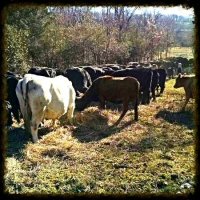 Area producers may find they need to move cull cows and bulls.
Area producers may find they need to move cull cows and bulls.
As a continuing service TLP will buy your cull cows or bulls any day you need us! We will use current market reports to establish price and we will not charge commission outside of sale day.
For more information contact:
Josh Woodward – 931-703-9090 at Columbia
Visit their website here.
Drink Tennessee Milk
Dixie Dairy Report
Milk Prices
FMMO #5 www.malouisville.com
March 2024
February 2024
January 2024
January 2024
FMMO #6 & #7 www.fmmatlanta.com
